PEOPLE BEHIND APRRN
APRRN LEADERSHIP

Hayat Akbari
APRRN Chair

Hayat Akbari
APRRN Chair
With lived experience of displacement and immigration detention, Hayat brings more than a decade of leadership in refugee rights, community organising, and regional advocacy across the Asia Pacific. His work spans youth empowerment, detention monitoring, policy research, and community-led program design, with a consistent focus on ensuring that people most affected by displacement shape the decisions that impact their lives. Hayat has served in governance and advisory roles at the regional and international levels, contributing to evidence-based advocacy and supporting networks that promote humane and rights-based approaches to protection.
Hayat previously served two terms as Chair of APRRN’s Youth Working Group, where he coordinated regional engagement, strengthened youth leadership, and worked closely with refugee communities to elevate their perspectives in policy dialogues. His work continues to centre dignity, inclusion, and collective leadership. He remains deeply committed to strengthening APRRN as a connected, transparent, and people-led network that advances practical solutions for protection and ensures that refugee voices remain at the core of the regional movement for rights and justice.
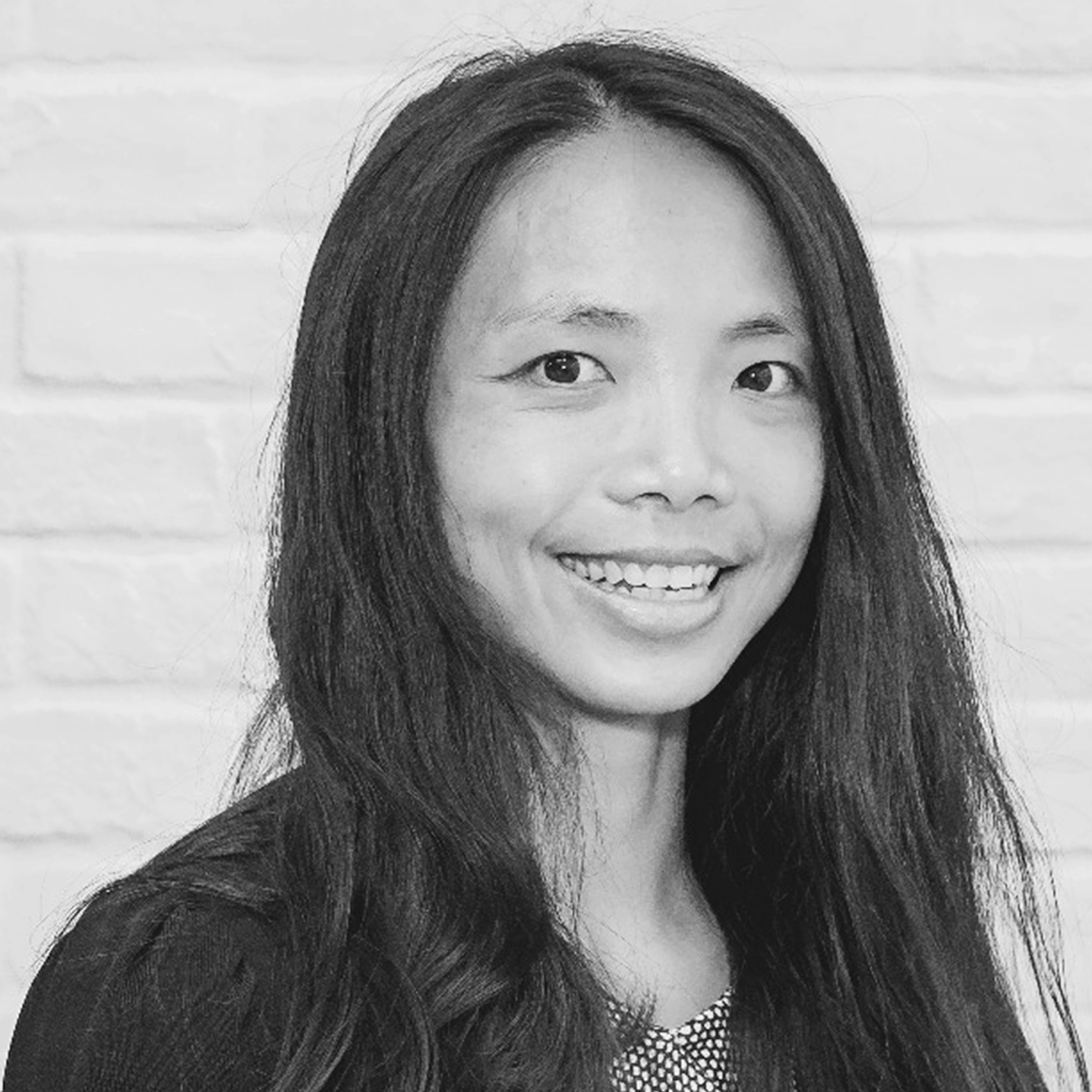
LYNETTE NAM
APRRN Deputy Chair

LYNETTE NAM
APRRN Deputy Chair
Lynette is a qualified lawyer with over 10 years of practice experience in immigration and asylum law in the Asia Pacific. She is currently the Executive Director of Justice Centre Hong Kong, where in her prior role as Senior Legal Advisor, she was responsible for designing and implementing legal services and strategies to advance protection and fair systems for refugees and other displaced people in Hong Kong. She has previously worked on legal aid and empowerment projects in Australia, Thailand, and Myanmar. Through the last two years, Lynette has chaired APRRN’s Legal Aid & Advocacy Working Group and contributed to the development of APRRN's incoming strategic plan.
Board
Steering Committee

Piyanut Kotsan
FRDP Board President & APRRN Board Member

Piyanut Kotsan
FRDP Board President & APRRN Board Member
Piyanut Kotsan is a human rights advocate and civic leader with over two decades of experience working with rights-based organizations in Thailand and across Southeast Asia. She currently serves as Board President of the Foundation for the Rights of Disadvantaged Populations (FRDP) and a Board Member of the Asia Pacific Refugee Rights Network (APRRN). Previously, she was the Executive Director of Amnesty International Thailand (2016–2025), where she led national and global campaigns, youth engagement initiatives, and human rights movement . Piyanut’s work focuses on grassroots participation, refugee protection, gender justice, and youth leadership. She holds a Master’s degree in Development Studies from the University of Leeds (UK) and brings deep expertise in participatory methodologies, advocacy, and strategic partnerships.

Mic Chawaratt Chawarangkul
FRDP Board Treasurer & APRRN Board Member

Mic Chawaratt Chawarangkul
FRDP Board Treasurer & APRRN Board Member
Mic Chawaratt Chawarangkul is the Asia-Pacific Regional Manager at the International Detention Coalition (IDC). Prior to joining IDC, Mic held various roles within the humanitarian, human rights, and development sectors across Asia and Africa. He co-founded the Coalition for the Rights of Refugees and Stateless Persons (CRSP) and the Thailand Migration Reform Consortium (TMR). Mic played a critical role in shaping Thailand's policy to end the immigration detention of children and in advocating for the establishment of the National Screening Mechanism for refugees in Thailand. He has served as a member of two Parliamentary House Sub-Committees focused on refugees and irregular migration, where he has championed reforms in Thailand's migration governance. Additionally, he advised the Parliamentary Committee on National Security, Border Affairs, National Strategy, and National Reform, offering vital analysis and amendments to the migration legislative framework in Thailand.

Krittaporn Semsantad
FRDP Secretary and APRRN Board Member

Krittaporn Semsantad
FRDP Secretary and APRRN Board Member
Krittaporn Semsantad is a humanitarian and human rights professional with extensive experience in refugee protection, irregular migration, and displacement issues in Thailand and the Mekong region. Currently serving as Program Director at the Peace Rights Foundation, she leads multi-stakeholder initiatives, liaising with government bodies, parliamentarians, donors, and civil society to advance durable solutions and non-refoulement principles. With a background in monitoring, evaluation, and research, she has conducted assessments, designed advocacy strategies, and delivered trainings to officials, partners, and communities. Her advisory roles include contributing to Thailand’s Parliamentary Committee on Legal Affairs, Justice, and Human Rights. Krittaporn combines program management expertise with a strong commitment to rights-based, evidence-driven advocacy for displaced persons and stateless populations.

David Keegan
APRRN International Board Member

David Keegan
APRRN International Board Member
David Keegan is a Senior Lecturer in Social Work at Excelsia University College in Sydney, Australia and is the immediate past Chair of APRRN, where he led the development of the strategic plan and reforms in funding and staffing arrangements. He is an experienced social work leader with over 25 years in community services, international NGOs and higher education. His work focuses on refugee protection, wellbeing and integration and more recently on the social impacts of Artificial intelligence. David was the founding CEO of HOST International, establishing programs across six countries in the Asia Pacific supporting refugees and migrants and has been an active member of APRRN since 2013. He is currently completing a PhD exploring how artificial intelligence is shaping social work practice, ethics and professional identity.

Carolina Gottardo
APRRN International Board Member

Carolina Gottardo
APRRN International Board Member
Carolina Gottardo has worked on human rights, migration, and gender for over two decades in various countries and contexts. She is currently the Executive Director of the International Detention Coalition (IDC), leading efforts against immigration detention and promoting alternatives. Previously, she was the director of the Jesuit Refugee Service (JRS) Australia and the director of the Latin American Women's Rights Service (LAWRS) in London. She has worked extensively on policy, advocacy, and government relations. Carolina has ample governance experience, having served on different boards, including experience in finance, fundraising, and HR. She has been on the APRRN International Board since 2018. Carolina also works closely with the UN and is the co-facilitator of the Alternatives to Detention Workstream of the UN Migration Network and a member of the UN Women Expert Working Group on the rights of migrant women in the GCM, among others. Carolina is a lawyer and an economist.

Ashok Gladston
APRRN International Board Member

Ashok Gladston
APRRN International Board Member
I have been part of APRRN from almost the time it started. I have served in various capacities as a working group member, chair of a working group, deputy chair, and acting chair of the network for a short period. I have been working with the refugees, empowering refugee-led organisations for the past 27 years, starting off as a counselor working in the camps, paying attention to the psycho social needs of the refugees. I have worked in dire emergency situations in different parts of the world. My role has been to provide training and development in the fields of management, human resource development, strategic planning, financial oversight, and providing emergency operational plans. I have also been involved in program monitoring and evaluation and building the capacity of grassroots organisations to maintain international standards. As an academic, I have taught human rights refugee studies and international humanitarian law for social work students primarily at Loyola College Chennai and across the world in over 45 countries. I have also served as the advisor to the UNHCR for their implementing with partners framework in Geneva for a period of 8 years. For APRRN, bring a commitment to people's development from the grassroots perspective, linking it with academic excellence, advocacy experience, and management acumen. Having seen this organisation evolve and contribute towards the empowerment of refugees in the world, I see this as an opportunity to improve systems in structures that enable it to maintain excellence in the care of the most needy refugees. I am happy to give my time and effort in order to alleviate the pain and suffering of the refugee community with whom I have worked for the larger part of my adult life.
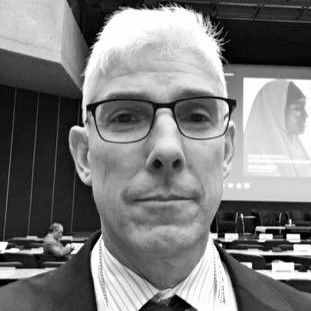
Graham Thom
APRRN International Board Member

Graham Thom
APRRN International Board Member
Dr Thom is currently the Advocacy Coordinator for the Refugee Council of Australia. Previously, he worked as Amnesty International Australia’s Refugee Adviser, from May 2000 to May 2024, working on behalf of individual asylum seekers as well as on broader human rights issues relating to refugees. In 2000, Dr Thom completed his PhD at the University of Sydney’s Department of Government. He has visited detention centres in Australia, including those previously on Christmas Island and refugee camps and detention centres in the Netherlands, India, Sri Lanka, Bangladesh, Syria, Iraq, Jordan, Indonesia, Malaysia, Kenya, PNG, Nauru and Thailand. Dr Thom continues to give lectures and publish articles on refugee issues, both globally and domestically.
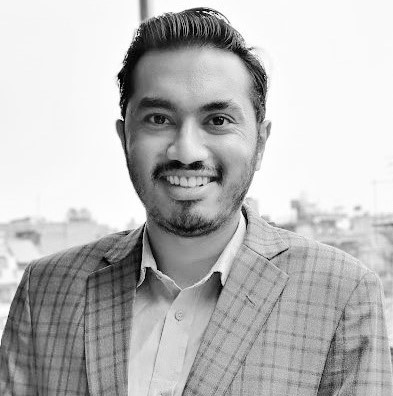
SUBIN LAL MULMI
APRRN International Board Member

SUBIN LAL MULMI
APRRN International Board Member
I am pleased to share how I believe I can contribute to APRRN’s work at the Board level, in a way that complements my role as the Deputy Chair of the South Asia Working Group. One of my core strengths is building bridges across movements and issue areas that are often treated in isolation. Through my work as a human rights lawyer and as Executive Director of Nationality For All, I have worked at the intersection of refugee protection, statelessness, nationality rights, gender equality, and legal identity. This has allowed me to cultivate strong relationships with actors working in statelessness, equal nationality rights, women’s rights, child rights, digital rights, inclusive CRVS systems and broader human rights spaces, and to translate these connections into joint advocacy, shared learning, and coordinated engagement with UN and regional mechanisms. As an International Board member, I would seek to support APRRN in strengthening these cross-sectoral linkages. In South Asia and beyond, refugee protection challenges are increasingly shaped by discriminatory nationality laws, gender-based exclusion, lack of legal identity, and digital and administrative barriers. I believe APRRN is well-placed to deepen collaboration with movements working on statelessness, equal nationality rights, and women’s rights, and I would actively contribute my networks and experience to help facilitate these connections, whether through joint statements, shared advocacy strategies, or coordinated participation in global and regional forums. I also see value in supporting APRRN’s positioning within global policy spaces by bringing in perspectives and allies from these adjacent fields. Having worked closely with coalitions and initiatives focused on ending statelessness and advancing gender-equal nationality laws, I have seen how cross-movement solidarity can strengthen protection outcomes for refugees and displaced populations. At the Board level, I would aim to help identify opportunities for APRRN to strategically align with and amplify these efforts while maintaining its clear mandate and member-driven focus. Finally, I am committed to approaches that centre lived experience and feminist, rights-based leadership. Many of the networks I work with are led by affected women and stateless or citizenship-affected persons, and I would bring this perspective into APRRN’s governance and strategic discussions, supporting efforts to ensure that refugee voices, particularly those of women and marginalised groups, remain central to regional and international advocacy. I would be honoured to contribute to APRRN’s International Board in this capacity and to support the network in strengthening its connections, influence, and solidarity across movements.

Hayat Akbari
APRRN Chair

Hayat Akbari
APRRN Chair
With lived experience of displacement and immigration detention, Hayat brings more than a decade of leadership in refugee rights, community organising, and regional advocacy across the Asia Pacific. His work spans youth empowerment, detention monitoring, policy research, and community-led program design, with a consistent focus on ensuring that people most affected by displacement shape the decisions that impact their lives. Hayat has served in governance and advisory roles at the regional and international levels, contributing to evidence-based advocacy and supporting networks that promote humane and rights-based approaches to protection. Hayat previously served two terms as Chair of APRRN’s Youth Working Group, where he coordinated regional engagement, strengthened youth leadership, and worked closely with refugee communities to elevate their perspectives in policy dialogues. His work continues to centre dignity, inclusion, and collective leadership. He remains deeply committed to strengthening APRRN as a connected, transparent, and people-led network that advances practical solutions for protection and ensures that refugee voices remain at the core of the regional movement for rights and justice.
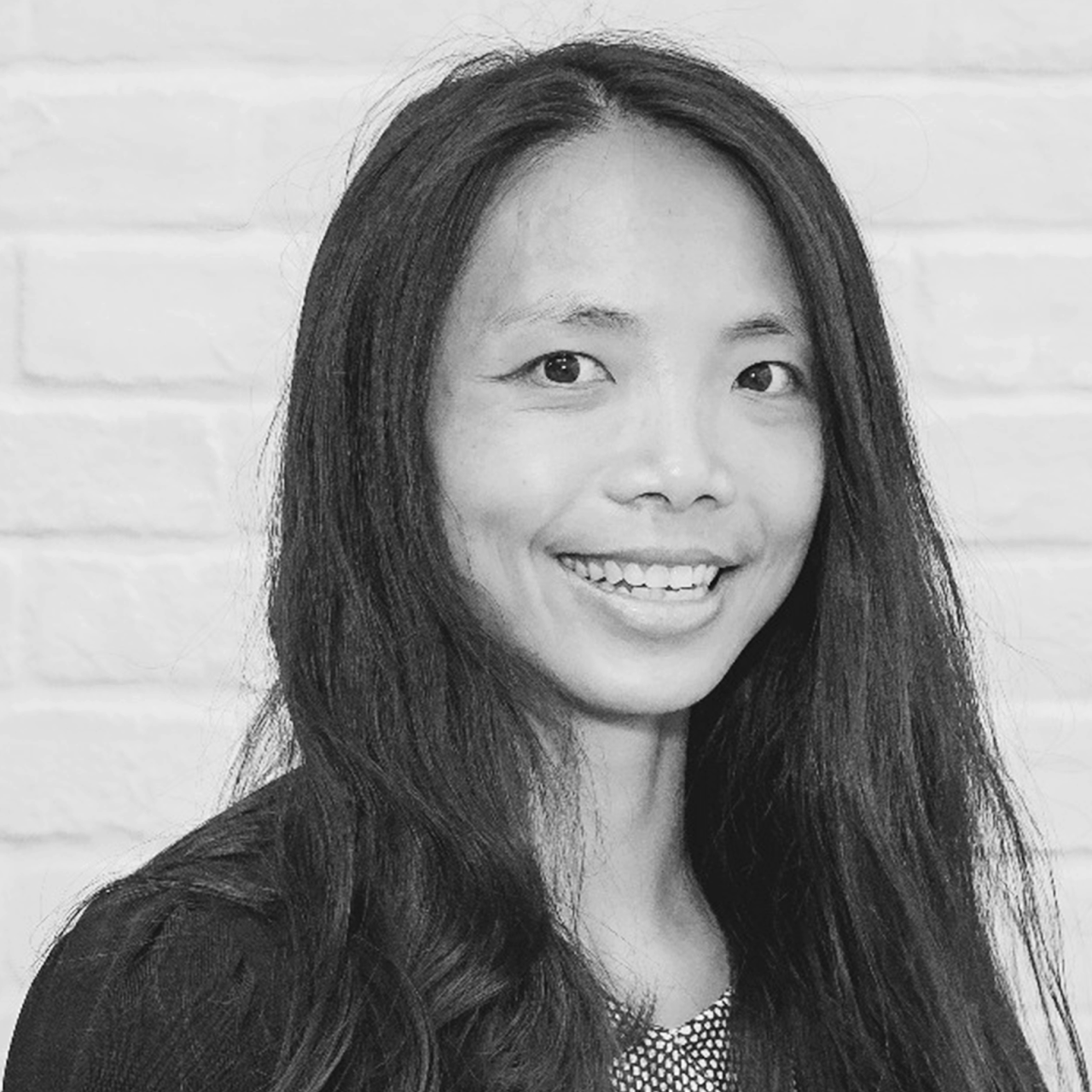
LYNETTE NAM
APRRN Deputy Chair

LYNETTE NAM
APRRN Deputy Chair
Lynette is a qualified lawyer with over 10 years of practice experience in immigration and asylum law in the Asia Pacific. She is currently the Executive Director of Justice Centre Hong Kong, where in her prior role as Senior Legal Advisor, she was responsible for designing and implementing legal services and strategies to advance protection and fair systems for refugees and other displaced people in Hong Kong. She has previously worked on legal aid and empowerment projects in Australia, Thailand, and Myanmar. Through the last two years, Lynette has chaired APRRN’s Legal Aid & Advocacy Working Group and contributed to the development of APRRN's incoming strategic plan.
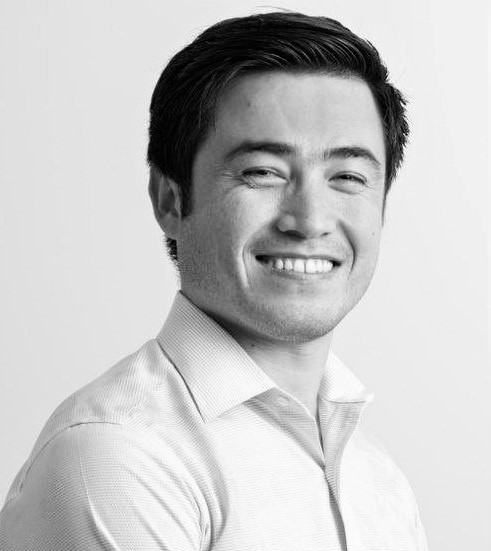
Hayat Akbari
APRRN Chair

Hayat Akbari
APRRN Chair
With lived experience of displacement and immigration detention, Hayat brings more than a decade of leadership in refugee rights, community organising, and regional advocacy across the Asia Pacific. His work spans youth empowerment, detention monitoring, policy research, and community-led program design, with a consistent focus on ensuring that people most affected by displacement shape the decisions that impact their lives. Hayat has served in governance and advisory roles at the regional and international levels, contributing to evidence-based advocacy and supporting networks that promote humane and rights-based approaches to protection. Hayat previously served two terms as Chair of APRRN’s Youth Working Group, where he coordinated regional engagement, strengthened youth leadership, and worked closely with refugee communities to elevate their perspectives in policy dialogues. His work continues to centre dignity, inclusion, and collective leadership. He remains deeply committed to strengthening APRRN as a connected, transparent, and people-led network that advances practical solutions for protection and ensures that refugee voices remain at the core of the regional movement for rights and justice.
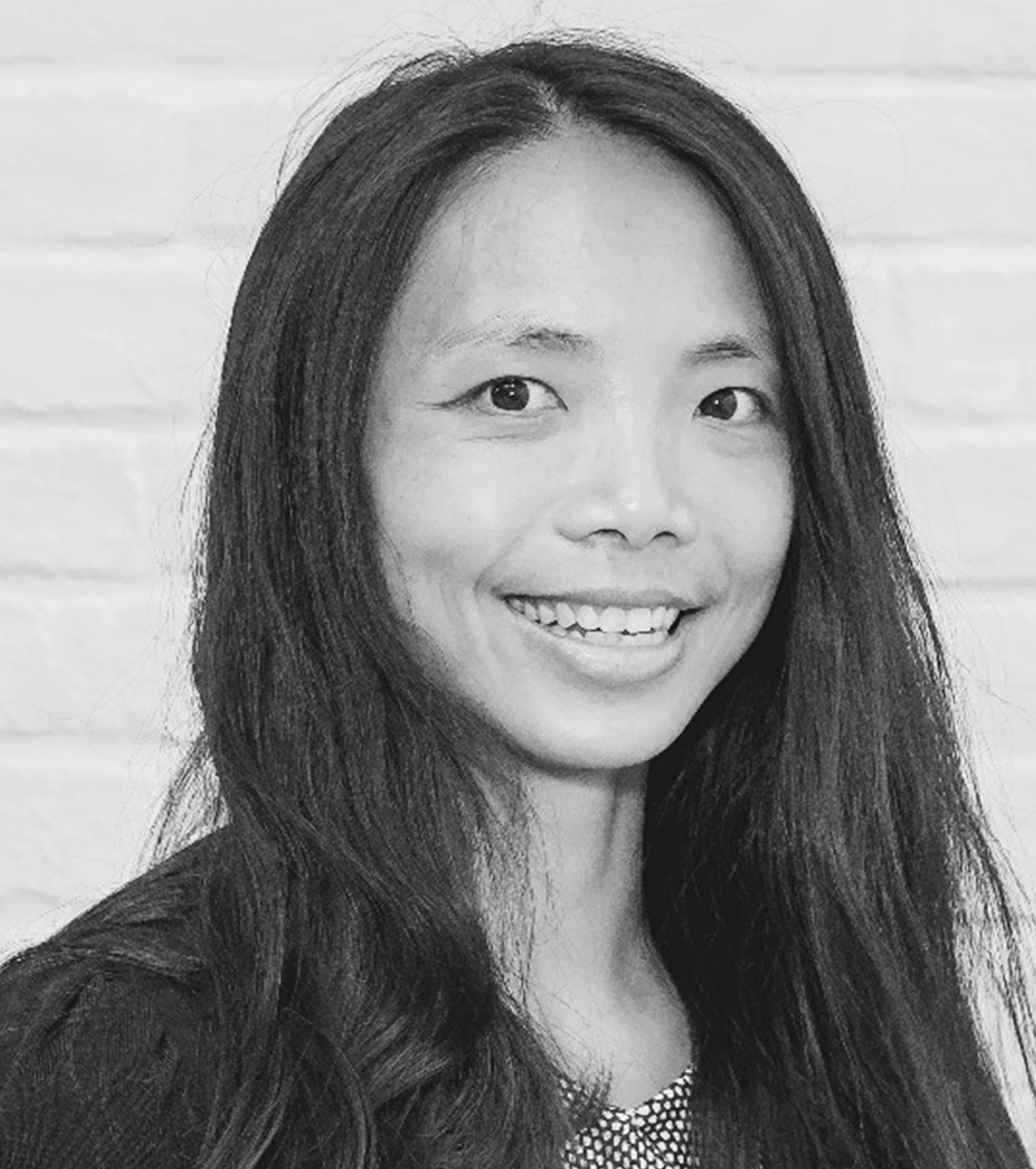
LYNETTE NAM
APRRN Deputy Chair

LYNETTE NAM
APRRN Deputy Chair
Lynette is a qualified lawyer with over 10 years of practice experience in immigration and asylum law in the Asia Pacific. She is currently the Executive Director of Justice Centre Hong Kong, where in her prior role as Senior Legal Advisor, she was responsible for designing and implementing legal services and strategies to advance protection and fair systems for refugees and other displaced people in Hong Kong. She has previously worked on legal aid and empowerment projects in Australia, Thailand, and Myanmar. Through the last two years, Lynette has chaired APRRN’s Legal Aid & Advocacy Working Group and contributed to the development of APRRN's incoming strategic plan.

Graham Thom
Australia, New Zealand, and the Pacific Working Group Chair

Graham Thom
Australia, New Zealand, and the Pacific Working Group Chair
Dr Thom is currently the Advocacy Coordinator for the Refugee Council of Australia. Previously, he worked as Amnesty International Australia’s Refugee Adviser, from May 2000 to May 2024, working on behalf of individual asylum seekers as well as on broader human rights issues relating to refugees. In 2000, Dr Thom completed his PhD at the University of Sydney’s Department of Government. He has visited detention centres in Australia, including those previously on Christmas Island and refugee camps and detention centres in the Netherlands, India, Sri Lanka, Bangladesh, Syria, Iraq, Jordan, Indonesia, Malaysia, Kenya, PNG, Nauru and Thailand. Dr Thom continues to give lectures and publish articles on refugee issues, both globally and domestically.
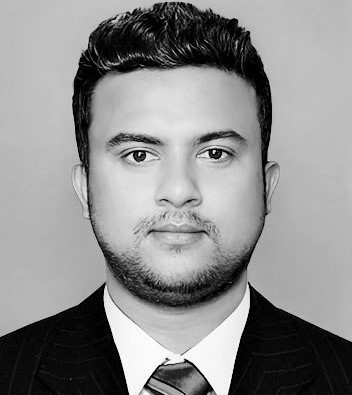
Khair Ullah
South Asia Working Group Chair

Khair Ullah
South Asia Working Group Chair
Khair Ullah is a Rohingya human rights defender, educator, and refugee advocate based in Cox’s Bazar, Bangladesh. With lived experience of forced displacement, he has dedicated his career to amplifying the voices of marginalised communities, particularly the Rohingya, through education, advocacy, research, and artistic expression. Currently serving as Educational Director of the Rohingya Youth Initiative (RYI), the founder of Resilient Refugee Alliance (RRA), which was recently established, Khair Ullah leads programs that empower refugee youth, strengthen community education, and foster leadership development among forcibly displaced populations. Under his guidance, RYI has advanced youth-led initiatives, promoted meaningful participation in policy dialogues, and created platforms for refugee voices in regional and international forums. Khair Ullah has been an active member of the Youth Working Group at the Asia Pacific Refugee Rights Network (APRRN) for the past three years, contributing to regional advocacy, strategy development, and youth engagement. He also served as an Advisory Board Member for Meaningful Refugee Participation at APRRN and currently chairs the South Asia Working Group in APRRN’s Steering Committee, consolidating priorities and elevating issues affecting displaced communities across South Asia. Beyond organisational leadership, Khair Ullah is recognised for his extensive work in human rights research, documentation, and artistic advocacy. He has collaborated with international organisations including Amnesty International, Human Rights Watch, Jesuit Refugee Service, Danish Refugee Council, UN OCHA, and APRRN. His projects have included research on Rohingya youth perspectives, health awareness campaigns, arts and writing series, and documentation of humanitarian crises and intersectional discrimination, including the challenges faced by transgender Rohingya. As a visual journalist and creative writer, Khair Ullah has published poetry collections (I’m a Rohingya, Rohingya Dreams), conducted spoken-word performances, and used photography to preserve Rohingya cultural identity and document human rights violations. His work has been featured internationally, including in France 24, Boom Saloon, New Internationalist, and Think. Do. Magazine, De Gruyter Brill, and various youth-led platforms. Khair Ullah’s advocacy extends to legal and policy spheres, contributing to Human Rights Watch reports, Virginia Law Weekly analyses, social media campaigns for the Danish Refugee Council, and expert commentary on international legal accountability for crimes against the Rohingya. He has also delivered opening remarks at UNHCR Regional Consultations, highlighting decades-long persecution, ongoing humanitarian crises, and the importance of meaningful refugee participation in shaping regional policy. Through a combination of lived experience, professional expertise, and creative expression, Khair Ullah bridges grassroots realities with regional and international advocacy, striving to ensure that the voices of displaced communities are heard, respected, and included in decision-making processes.

Naiyana Thanawattho
Southeast Asia Working Group Chair

Naiyana Thanawattho
Southeast Asia Working Group Chair
Naiyana Thanawattho is the Executive Director of Asylum Access Thailand, where she leads the organization's legal services, community engagement, and policy advocacy initiatives. A prominent advocate for refugee rights, she serves as a founding member of the Myanmar Response Network (MRN) and formerly coordinated the Coalition for the Rights of Refugees and Stateless Persons (CRSP) from 2020-2022. She actively collaborates with refugee networks to promote alternatives to detention and advocates for refugee recognition, with a particular focus on recent Myanmar arrivals. In 2021-2022, Naiyana represented civil society organizations (CSOs) in the Thai Government’s Sub-Committee under the Regulation of the Office of the Prime Minister on the Screening of Aliens who Enter into the Kingdom and are Unable to Return to the Country of Origin, B.E. 2562 (2019), or the National Screening Mechanism. She brought CSO and refugee perspectives into the Sub-Committee’s considerations while developing the guidelines, procedures, and criteria for the screening of protected persons. With over 12 years of expertise in child protection, Naiyana has held key positions at leading international organizations including UNICEF, UNHCR, and Save the Children, where she served as Child Protection Specialist. She holds a master's degree in Women Studies from Thammasat University in Bangkok.
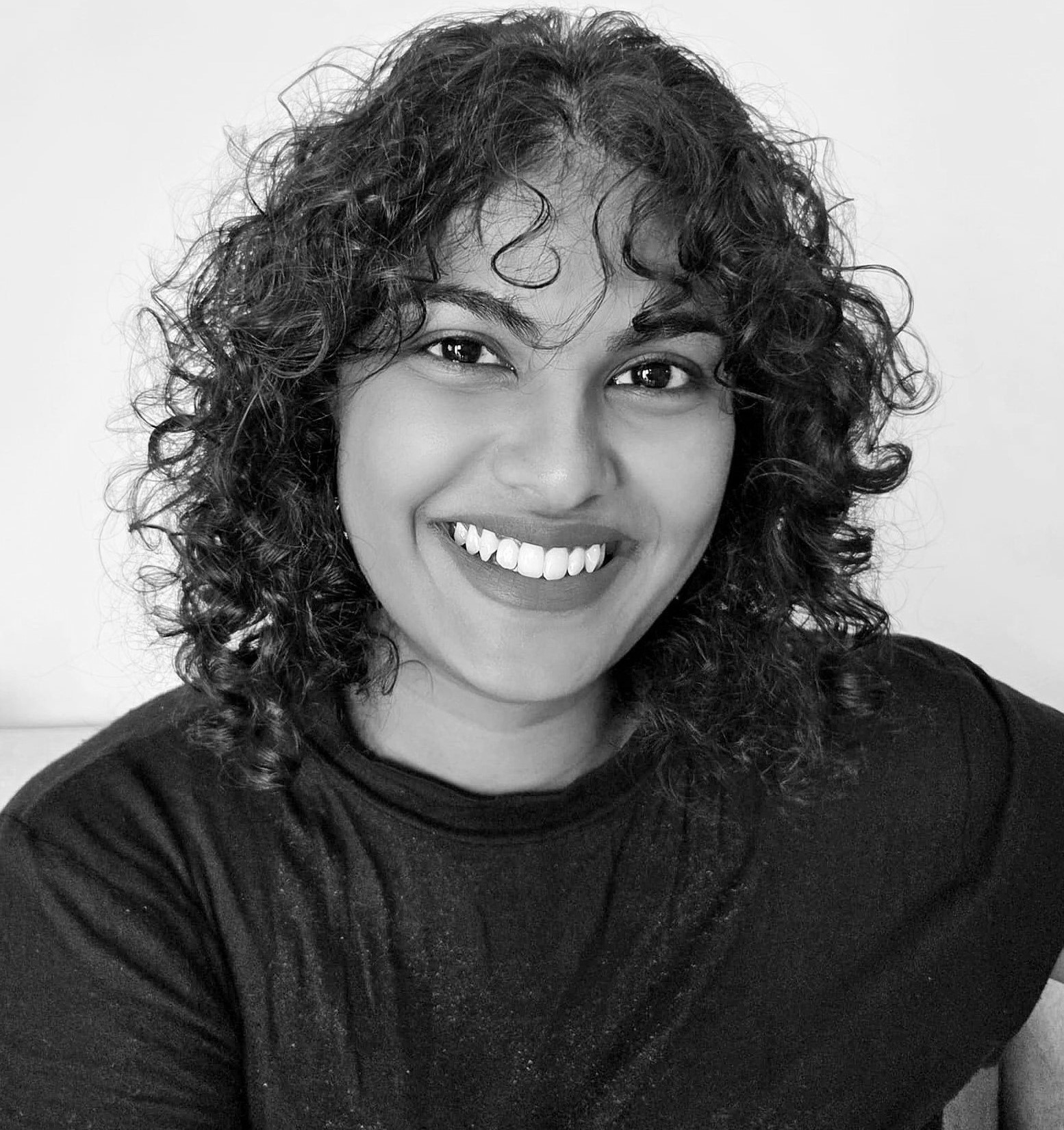
Hannah Jambunathan
Immigration Detention Working Group Chair

Hannah Jambunathan
Immigration Detention Working Group Chair
Hannah Jambunathan is the Asia Pacific Programme Officer at the International Detention Coalition (IDC), where she works to drive policy change on immigration detention and ATD across national, regional, and global levels. In Malaysia, she is currently working in close collaboration with civil society and Government stakeholders to develop a community-based ATD policy for children, and she also coordinates a national civil society network to mobilise advocacy towards creating a more open social and political environment towards migrants and refugees. Drawing on her academic research background, Hannah has authored several research reports and policy briefs on the issue of immigration detention and ATD, in particular on the impacts of immigration detention on refugee families and communities, the intersections of gender and immigration detention, and the critical need to reduce the use of immigration detention for children.

Hamsa Vijayaraghavan
Legal Aid and Advocacy Working Group Chair

Hamsa Vijayaraghavan
Legal Aid and Advocacy Working Group Chair
Hamsa is a qualified lawyer who has previously worked as an asylum and immigration adviser in the UK and with the UNHCR field office in India, as well as at the Ministry of Women and Child Development of the Government of India and UNICEF. As the Chief Operating Officer at Migration and Asylum Project, India’s first and only centre for the study of forced migration, her work is centred around advocating for a cohesive movement towards safe migration in the region by making the Rule of Law central to addressing human rights challenges and securing opportunities for rehabilitation for displaced populations. A committed feminist leader, she advocates for inclusive justice systems that recognise gendered harms, intersectional barriers, and the lived realities of displaced communities. She was awarded the Chevening Gurukul Fellowship at the University of Oxford and is a 2024 Asia Peacebuilding Innovators Fellow (Salzburg Global Seminar) and 2024 Fisher Family Fellow (Stanford University). She has previously chaired the South Asia Working Group, and now, as Chair of APRRN’s Legal Aid & Advocacy Working Group, she aims to work to strengthen regional collaboration, amplify community-led legal responses, and advance equitable protection frameworks across the Asia-Pacific.

Kunanyaporn Jirasamatakij (Git)
Legal Aid and Advocacy Working Group Deputy Chair

Kunanyaporn Jirasamatakij (Git)
Legal Aid and Advocacy Working Group Deputy Chair
Git is a human rights advocate with over eight years of experience working on Indigenous rights, enforced disappearances, the anti-torture bill, and digital rights. She also has experience in media engagement, blogging, podcast production, and journalism. Building on this background in rights-based advocacy, she later shifted her focus toward displacement and refugee protection, working on issues that connect human rights, regional policy, and humanitarian response. She currently serves as the Regional Advocacy Focal Point for Jesuit Refugee Service (JRS) Asia Pacific, supporting policy development and evidence-based research across eight countries. Her work includes advancing the right to work for refugees, strengthening cross-border Myanmar–Thailand advocacy, and contributing to regional efforts that bring forgotten crises to global attention. Git currently serves as the Deputy Chair of the Legal Aid and Advocacy Working Group within the Asia Pacific Refugee Rights Network (APRRN).
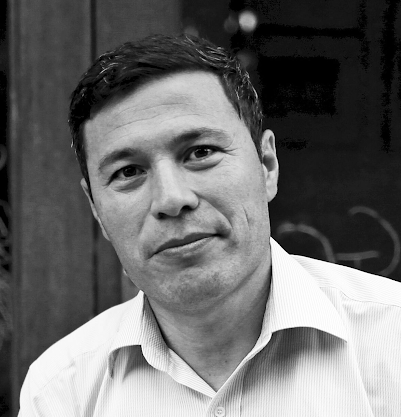
Muzafar Ali
Refugee Leadership and Participation Working Group Chair

Muzafar Ali
Refugee Leadership and Participation Working Group Chair
Muzafar Ali is a former refugee from Afghanistan, now based in Australia. He is the co-founder and CEO of Cisarua Learning, a refugee-led organisation. A photographer, filmmaker, and writer, he is also a passionate advocate for the rights of refugees and other marginalised groups. Between 2005 and 2012, Muzafar worked with various United Nations offices as a disarmament program coordinator, political analyst, and media consultant. In 2013, while in Indonesia, he mobilised the refugee community in West Java to co-found the Cisarua Refugee Learning Centre, the first refugee-led school in Indonesia. The school became a model of self-reliance, sustainability, and mutual support, providing equal opportunities for refugee women to take up leadership roles. Now, through Cisarua Learning, he supports the education of 1,300 refugee children in Indonesia and Thailand by backing refugee-led initiatives that provide critical psychosocial support in challenging conditions. Muzafar has co-directed and co-produced three documentary films: The Staging Post, Watandar – My Countryman, and We Are Not Powerless. He has also written for theatre series and consulted on numerous film and drama related to amplify voices and show real image of refugees mostly untold in traditional media.
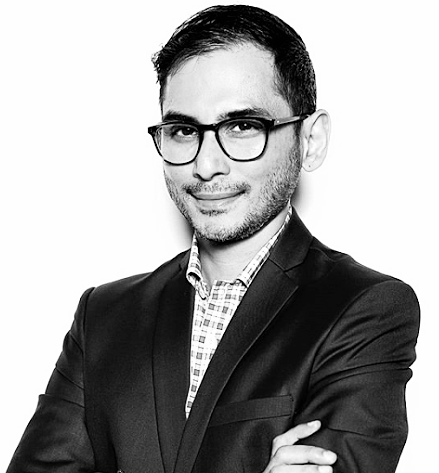
Ryan Joseph Figueiredo
Women, Gender and Diversity Leadership Working Group Chair

Ryan Joseph Figueiredo
Women, Gender and Diversity Leadership Working Group Chair
Ryan is the founder and Executive Director of Equal Asia Foundation – a regional LGBTIQ+ non-profit think tank and innovation incubator with offices in Amsterdam and Bangkok. Equal AF’s work is focused on future scoping and future-proofing around issues such as ageing, climate change, mental health, and financial citizenship for LGBTIQ+ communities in Asia. Ryan has worked in the non-profit and management consulting space for over 20 years. At Equal AF, Ryan leads regional and national multi-specialisation initiatives that address deep-seated inequities within the LGBTIQ+ movement. In 2018, Ryan was selected as one of the Human Rights Campaign's Global Innovators. In 2019, Thomson Reuters Foundation named him a Global Changemaker for his work. In 2020, he was recognised as a Global Change accelerator by the Resource Alliance. Ryan sits on several international LGBTIQ+ advisory and mentorship groups. Ryan is a formerly displaced person. He served on the board of the Forcibly Displaced People Network in Australia. He is an alumnus of the Tata Institute of Social Sciences. He has trained in clinical trials at the London School of Tropical Medicine and in population ageing at the University of Oxford.
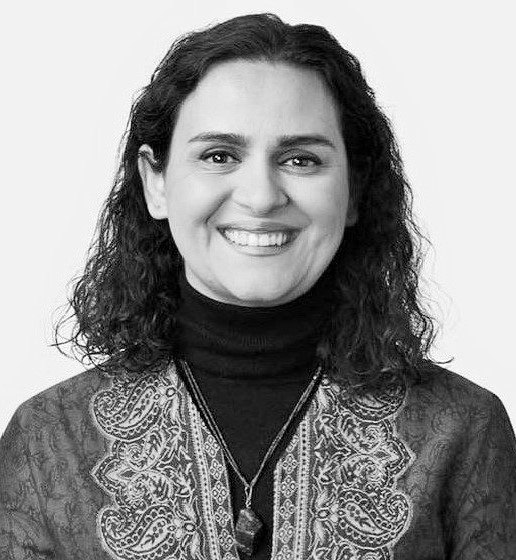
Rana Ebrahimi
Age, Gender, and Diversity WG Chair

Rana Ebrahimi
Age, Gender, and Diversity WG Chair
Rana Ebrahimi, National Manager of MYAN, champions advocating for the rights of refugee and migrant children and youth. She is an expert in social inclusion, influencing policy and practice. Rana is chair of Refugee Education Australia, Chair of Diversity, Equity, Inclusion and Belonging of Rotary District 9800, Chair of Asia Pacific Refugee Rights Network’s Age Gender Diversity Working Group. She is the treasurer of Conversation at the Crossroad and a member of several advisory groups, including the SBS Community Advisory Committee, Welcoming Australia and the National Youth Employment Body. Rana was appointed as a reference group member for the Multicultural Framework Review, is the former President of the Equal Employment Opportunity Network. She is the first Iranian woman to serve as National Head of Office for the United Nations High Commissioner for Refugees (UNHCR) in Iran. Rana is a recipient of the Multicultural Award of Excellence 2023 and has been recognised as a Rotary Champion of Change.
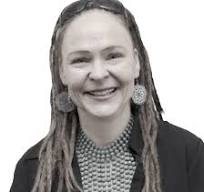
Birgit Grafarend-Watunga
Australia, New Zealand, and the Pacific Working Group Deputy Chair

Birgit Grafarend-Watunga
Australia, New Zealand, and the Pacific Working Group Deputy Chair
Birgit Grafarend-Watungwa is an experienced practitioner and advisor in refugee and migrant settlement, with over 20 years working alongside former refugee and migrant communities in Aotearoa New Zealand. She currently serves as Chief Executive of HOST International Aotearoa New Zealand and has more than 15 years of leadership and management experience supporting ethnic communities. Originally from Germany, Birgit also lived in Zimbabwe before settling in New Zealand two decades ago. She holds a Master of Arts in Cultural Anthropology and Sociology, a Bachelor’s in Applied Management, a Diploma in Business Studies, and a Certificate in Adult Education. Her work is grounded in community-led, strengths-based approaches that centre lived experience, wellbeing, and long-term settlement outcomes. She brings expertise in resettlement, integration, and complementary pathways and has actively contributed to policy dialogues in Aotearoa New Zealand and internationally, including participation in Consultations on Resettlement and Complementary Pathways (CRCP) in Geneva and four years’ engagement with the Global Refugee Sponsorship network. Across local and global contexts, Birgit brings a strong commitment to equity, self-agency, and meaningful participation for people from refugee and migrant backgrounds.

Dim Dim Lian
East Asia Working Group Deputy Chair

Dim Dim Lian
East Asia Working Group Deputy Chair
Dim Dim Lian is an advocate specialising in inclusive development, digital empowerment, and refugee participation across Asia and beyond. Originally from Myanmar’s Chin community, she brings lived experience as a refugee in Malaysia and is now resettled in Japan through a third-country resettlement program. Her personal journey through displacement shapes her commitment to building protection systems and participatory structures that uphold stability, dignity, and agency for refugees. In her current position as Analyst for Advocacy and Partnerships at Robo Co-op, a refugee-led digital cooperative, she contributes to advocacy, training, and partnership development that expand remote-work opportunities and digital upskilling for refugees. At the national level, her perspectives have been recognised through her feature in a video by the Prime Minister’s Office of Japan highlighting the country's engagement in third-country resettlement. She also serves as the lead of the Mentorship Working Group of the Connecting and Equipping Refugees to Tertiary Education (CERTE) initiative in Malaysia, supporting access to higher education for displaced learners. Academically, she is a graduate of Waseda University with a Master's in International Relations. She focuses on intra-ethnic dynamics in Myanmar, exploring how internal group relations shape governance in multi-ethnic societies. Drawing from her lived refugee experience, Dim integrates research, advocacy, and practice to promote meaningful refugee participation and refugees’ empowerment across global and local contexts.

Subin Lal Mulmi
South Asia Working Group Deputy Chair

Subin Lal Mulmi
South Asia Working Group Deputy Chair
Subin Mulmi is a human rights lawyer and researcher based in Nepal. He currently serves as the Executive Director of Nationality for All (NFA), a regional organisation advocating for the right to nationality in the Asia-Pacific region. He is a Founding Member of the Statelessness and Dignified Citizenship Coalition – Asia Pacific and has previously held several international leadership roles, including as an Interim Core Group Member of the Global Movement Against Statelessness, a Member of the UNHCR Taskforce on the Global Alliance to End Statelessness, and a Member of the Steering Group of the Global Statelessness Fund. In Nepal, Subin has worked extensively on issues of gender equality, social inclusion, and citizenship rights. He served as the Gender Equality and Social Inclusion Advisor for Mercy Corps Nepal and as a Senior Legal Advisor at the Forum for Women, Law and Development (FWLD) in Kathmandu, where he played a key role in advocating for equal citizenship rights for women. Subin holds a Master’s degree in International Affairs from the Fletcher School of Law and Diplomacy at Tufts University, with a focus on Gender Studies, Migration, and Human Rights.

Husson Ahmad
Southeast Asia Working Group Deputy Chair

Husson Ahmad
Southeast Asia Working Group Deputy Chair
Husson Ahmad is a Consultant and Rohingya Community Advocate with nine years of experience supporting marginalised and refugee communities through advocacy, legal empowerment, and capacity-building initiatives. He is also the Founder of the Rohingya Youths Support Network (RYSN), a youth-led refugee organisation dedicated to advancing education, leadership development, and community engagement among Rohingya young people in Malaysia. Husson has worked with leading humanitarian organisations, including Asylum Access Malaysia, the International Rescue Committee, MERCY Malaysia, Host International, and Health Equity Initiatives, contributing to community outreach, child protection, interpretation, and mixed-migration research. He has also played key roles in research with the Mixed Migration Centre and served as a focal point for academic publications on refugee issues. His advocacy has been featured by UNICEF Malaysia and BBC Vietnamese, highlighting his commitment to refugee rights, social justice, and meaningful community inclusion. Fluent in multiple languages and skilled in cross-sector collaboration, Husson continues to strengthen partnerships between refugee communities, civil society, and international stakeholders to promote protection, dignity, and long-term solutions for displaced populations.

Madiha Ali
Immigration Detention Working Group Deputy Chair

Madiha Ali
Immigration Detention Working Group Deputy Chair
Madiha Ali Changezi is a lawyer at Dixon and Co Lawyers and a former Judges’ Clerk at the High Court in Auckland. With a focus on refugee and human rights law, Madiha brings both professional expertise and lived experience as a former refugee to her advocacy and legal practice. She has contributed to national and international policy development through her roles on the UNHCR Refugee Advisory Group to the CRCP, the New Zealand Refugee Advisory Panel, and the New Zealand National Refugee Youth Council. Madiha holds a Bachelor of Laws (Honours) from the University of Waikato. Alongside her academic and legal pursuits, Madiha has worked as a youth worker and community advocate, supporting ethnic youth from migrant and refugee backgrounds. In recognition of her contributions to the community, she received a Civic Award from the Hamilton City Council in 2024. Madiha has shared insights at global forums such as the UNHCR Executive Committee Meeting and the Global Refugee Forum in Geneva, speaking on the importance of refugee self-reliance and lived experience leadership. Madiha brings a thoughtful, intersectional approach to her work and is committed to fostering inclusive systems that reflect the diversity of the communities they serve.

Muna Baroud
Refugee Leadership and Participation Working Group Deputy Chair

Muna Baroud
Refugee Leadership and Participation Working Group Deputy Chair
Muna Baroud is the co-founder of Emplace Youth Initiative, a refugee-led initiative that works with refugee communities in Indonesia, especially youth. Through Emplace, she works closely with refugee youth on leadership development and community-driven initiatives that respond to gaps in access to education, skills development, and participation. Her work is grounded in long-term community engagement and lived experience, with a focus on building inclusive, accountable, and youth-centred approaches that support refugee youth to lead, organise, and advocate for their communities.

Mohammed Ahtaram
Creative Initiatives in Practice Working Group Deputy Chair

Mohammed Ahtaram
Creative Initiatives in Practice Working Group Deputy Chair
My name is Ahtaram Shin, and I am an independent Journalist & Rights Advocate, researcher, and freelancer with a focus on human rights advocacy and documentation. I was also a teacher in an affiliated middle school in Myanmar. The Rohingya community led high schools. I was also I am a founder of the Rohingya Youth Club and also serve as an Editor and Mentor at Rohingyatographer, guiding and supporting the organisation's work. I have also collaborated with many other Civil societies in the camp and Myanmar. I am a Deputy Chair of the Creative Initiative in Practice of APRRN (Asia Pacific Refugee Rights Network). I also work as a remote medical interpreter and transcriptionist. With nearly a decade of experience, I have consistently contributed to various media outlets, passionately covering the voices and issues of marginalised groups, minority communities, and border residents, with a particular emphasis on Rohingya affairs. I have worked with many international organisations for documentation, translation and interpretation. Furthermore, I have been training and teaching refugee youths for eleven years now. Nowadays, I work as chief editor and senior mentor.
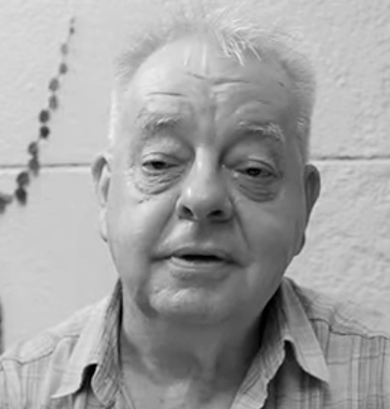
John Patrick Murray
Creative Initiatives in Practice Working Group Chair

John Patrick Murray
Creative Initiatives in Practice Working Group Chair
I come from Brisbane, in Australia, having spent the last 20 years in Bangkok, where I work with Caritas Thailand on migration, specifically migrant worker populations, urban refugees, and Burmese along the border with Myanmar. I am the Director of the National Catholic Commission on Migration and play a pastoral role in reaching out to refugees in Bangkok and beyond. I am here due to my belonging to the Order of St Augustine in the Catholic Church and being a priest. This is because my assignment in the Church is to the pastoral care of refugees and migrants. I am COERR’s focal person with APRRN. I value this connection and network, even if I have not played a high-profile role over the years. My specific passion has been helping urban refugees and Myanmar and its people. We did have a great local network in Bangkok, furthering the plight of urban refugees - BASRAN (Bangkok Asylum Seeker and Refugee Assistance Network). Given the realities of our present world, networking is more important than before, looking to new ways to operate, coordinate, and find resources.
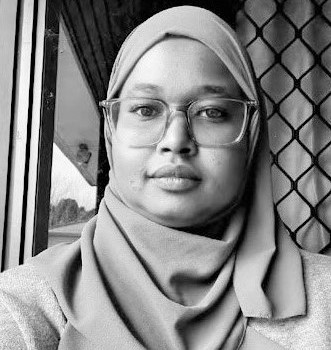
Nimo Ahmed
Women, Gender, and Diversity Working Group Deputy Chair

Nimo Ahmed
Women, Gender, and Diversity Working Group Deputy Chair
Nimo Ahmed is the co-founder and Director of The Sisterhood, a refugee women–led organisation in Indonesia. She has been central in creating safe spaces and providing essential support that empowers refugee women to build confidence, strengthen resilience, and feel safe within their community. For the past eight years, Nimo has focused on community organising, project leadership, and advocacy. She brings together women from diverse faiths and backgrounds, nurtures teamwork, and champions women’s refugee leadership. Alongside her leadership role, Nimo is a social service student and is now pursuing her Master of Social Service, further strengthening her ability to support vulnerable communities. Her work is grounded in the belief that upholding refugee rights is essential to building safe, inclusive, and resilient societies.
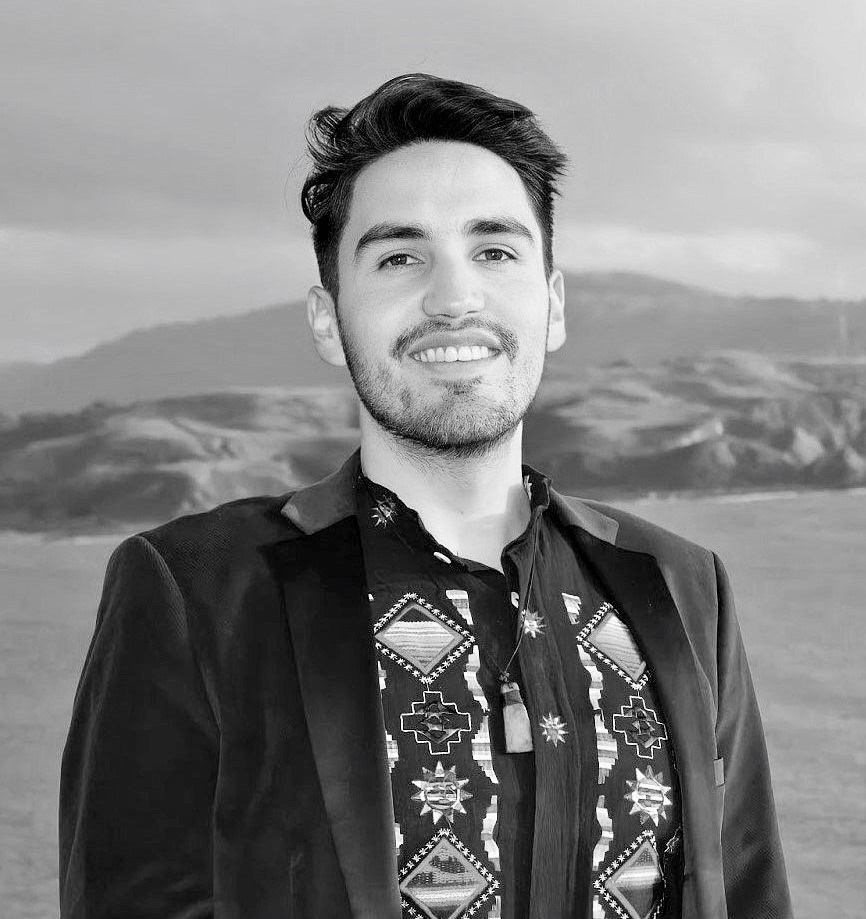
Daniel Gamboa
Age, Gender and Diversity WG Deputy Chair

Daniel Gamboa
Age, Gender and Diversity WG Deputy Chair
Daniel Gamboa is the CEO of the New Zealand National Refugee Youth Council (NZNRYC), the only refugee youth-led organization in New Zealand. Daniel has always aimed to create an inclusive and supportive environment that enables refugee youth to thrive, voice their concerns, and contribute to shaping policies and initiatives that promote their rights and well-being. As a proud member of the rainbow community, he has also led a number of initiatives to support the rainbow refugee community. Daniel and his mother fled Colombia when rebels threatened to kill the then 12-year-old boy Daniel because his mother refused to hide their weapons in her restaurant. They then became refugees in Ecuador where they were violently discriminated against because of being Colombian. In 2012 after living in Ecuador for 6 years, the UNHCR resettled Daniel and his mother to New Zealand. His academic background includes a bachelor's degree in Political Science and Development Studies from Victoria University of Wellington, a leadership diploma from the University of Cambridge, and a certificate in Refugee and Forced Migration Studies from Oxford University. He has held senior roles in the New Zealand government. He has worked as a senior engagement advisor for the NZ Department of Internal Affairs and the New Zealand Royal Commission of Inquiry into State Care Abuse. He is the deputy chair for the youth working group of the Asia Pacific Refugee Rights Network. He has attended and participated at the 2023 UNHCR Regional Consultations with NGOs in Asia and the Pacific and has been a guest speaker at the following: CRCP working group in Sydney (2024), Asia Pacific Refugee Rights Conference (2016 & 2023), The Annual Tripartite Consultations on Resettlement (2016 & 2017) & Annual consultations with NGOs (2016).
Working Groups
Geographic
Thematic
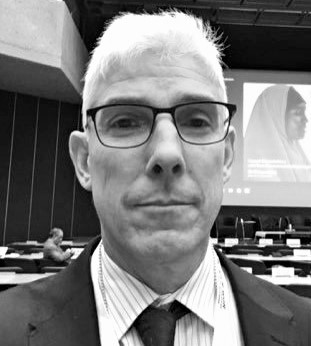
Graham Thom
Australia, New Zealand, and the Pacific Working Group Chair

Graham Thom
Australia, New Zealand, and the Pacific Working Group Chair
Dr Thom is currently the Advocacy Coordinator for the Refugee Council of Australia. Previously, he worked as Amnesty International Australia’s Refugee Adviser, from May 2000 to May 2024, working on behalf of individual asylum seekers as well as on broader human rights issues relating to refugees. In 2000, Dr Thom completed his PhD at the University of Sydney’s Department of Government. He has visited detention centres in Australia, including those previously on Christmas Island and refugee camps and detention centres in the Netherlands, India, Sri Lanka, Bangladesh, Syria, Iraq, Jordan, Indonesia, Malaysia, Kenya, PNG, Nauru and Thailand. Dr Thom continues to give lectures and publish articles on refugee issues, both globally and domestically.
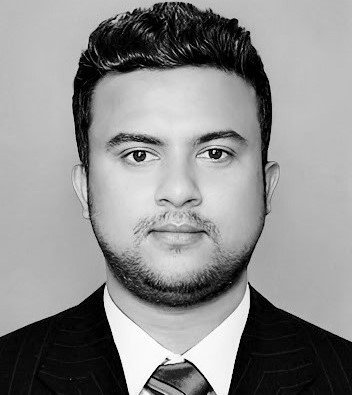
Khair Ullah
South Asia Working Group Chair

Khair Ullah
South Asia Working Group Chair
Khair Ullah is a Rohingya human rights defender, educator, and refugee advocate based in Cox’s Bazar, Bangladesh. With lived experience of forced displacement, he has dedicated his career to amplifying the voices of marginalised communities, particularly the Rohingya, through education, advocacy, research, and artistic expression. Currently serving as Educational Director of the Rohingya Youth Initiative (RYI), the founder of Resilient Refugee Alliance (RRA), which was recently established, Khair Ullah leads programs that empower refugee youth, strengthen community education, and foster leadership development among forcibly displaced populations. Under his guidance, RYI has advanced youth-led initiatives, promoted meaningful participation in policy dialogues, and created platforms for refugee voices in regional and international forums. Khair Ullah has been an active member of the Youth Working Group at the Asia Pacific Refugee Rights Network (APRRN) for the past three years, contributing to regional advocacy, strategy development, and youth engagement. He also served as an Advisory Board Member for Meaningful Refugee Participation at APRRN and currently chairs the South Asia Working Group in APRRN’s Steering Committee, consolidating priorities and elevating issues affecting displaced communities across South Asia. Beyond organisational leadership, Khair Ullah is recognised for his extensive work in human rights research, documentation, and artistic advocacy. He has collaborated with international organisations including Amnesty International, Human Rights Watch, Jesuit Refugee Service, Danish Refugee Council, UN OCHA, and APRRN. His projects have included research on Rohingya youth perspectives, health awareness campaigns, arts and writing series, and documentation of humanitarian crises and intersectional discrimination, including the challenges faced by transgender Rohingya. As a visual journalist and creative writer, Khair Ullah has published poetry collections (I’m a Rohingya, Rohingya Dreams), conducted spoken-word performances, and used photography to preserve Rohingya cultural identity and document human rights violations. His work has been featured internationally, including in France 24, Boom Saloon, New Internationalist, Think Do Magazine, De Gruyter Brill, and various youth-led platforms. Khair Ullah’s advocacy extends to legal and policy spheres, contributing to Human Rights Watch reports, Virginia Law Weekly analyses, social media campaigns for the Danish Refugee Council, and expert commentary on international legal accountability for crimes against the Rohingya. He has also delivered opening remarks at UNHCR Regional Consultations, highlighting decades-long persecution, ongoing humanitarian crises, and the importance of meaningful refugee participation in shaping regional policy. Through a combination of lived experience, professional expertise, and creative expression, Khair Ullah bridges grassroots realities with regional and international advocacy, striving to ensure that the voices of displaced communities are heard, respected, and included in decision-making processes.
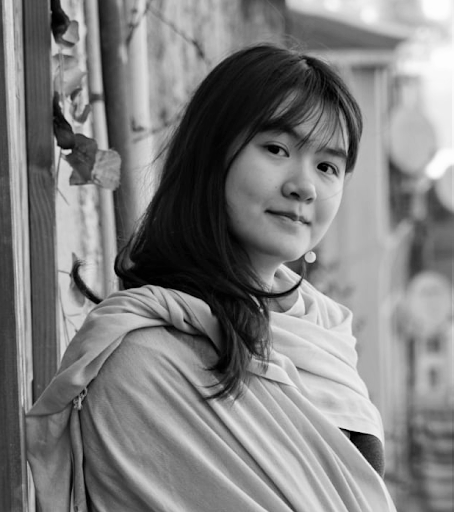
Lai Yen Rong
East Asia Working Group Chair

Lai Yen Rong
East Asia Working Group Chair
Yen-Rong is a Refugee Rights Campaigner with the Taiwan Association for Human Rights (TAHR), where she works to strengthen legal and policy frameworks for refugee protection and to support asylum seekers in Taiwan. Her responsibilities include coordinating case support for individuals seeking asylum, developing advocacy strategies to advance fair procedures, and engaging with parliamentarians and government agencies to promote institutional reforms. TAHR also leads capacity-building initiatives for frontline actors, including immigration officers, judges, and lawyers, and organizes public education activities to raise awareness about refugee rights. Through TAHR’s active participation in APRRN and collaboration with other organizations in East Asia, the team has contributed to shared learning within the East Asia Working Group, drawing on insights from partners in South Korea, Japan, and Hong Kong to strengthen national advocacy efforts and address key challenges in Taiwan’s asylum and detention system.

Naiyana Thanawattho
Southeast Asia Working Group Chair

Naiyana Thanawattho
Southeast Asia Working Group Chair
Naiyana Thanawattho is the Executive Director of Asylum Access Thailand, where she leads the organization's legal services, community engagement, and policy advocacy initiatives. A prominent advocate for refugee rights, she serves as a founding member of the Myanmar Response Network (MRN) and formerly coordinated the Coalition for the Rights of Refugees and Stateless Persons (CRSP) from 2020-2022. She actively collaborates with refugee networks to promote alternatives to detention and advocates for refugee recognition, with a particular focus on recent Myanmar arrivals. In 2021-2022, Naiyana represented civil society organizations (CSOs) in the Thai Government’s Sub-Committee under the Regulation of the Office of the Prime Minister on the Screening of Aliens who Enter into the Kingdom and are Unable to Return to the Country of Origin, B.E. 2562 (2019), or the National Screening Mechanism. She brought CSO and refugee perspectives into the Sub-Committee’s considerations while developing the guidelines, procedures, and criteria for the screening of protected persons. With over 12 years of expertise in child protection, Naiyana has held key positions at leading international organizations including UNICEF, UNHCR, and Save the Children, where she served as Child Protection Specialist. She holds a master's degree in Women Studies from Thammasat University in Bangkok.

Birgit Grafarend-Watunga
Australia, New Zealand, and the Pacific Working Group Deputy Chair

Birgit Grafarend-Watunga
Australia, New Zealand, and the Pacific Working Group Deputy Chair
Birgit Grafarend-Watungwa is an experienced practitioner and advisor in refugee and migrant settlement, with over 20 years working alongside former refugee and migrant communities in Aotearoa New Zealand. She currently serves as Chief Executive of HOST International Aotearoa New Zealand and has more than 15 years of leadership and management experience supporting ethnic communities. Originally from Germany, Birgit also lived in Zimbabwe before settling in New Zealand two decades ago. She holds a Master of Arts in Cultural Anthropology and Sociology, a Bachelor’s in Applied Management, a Diploma in Business Studies, and a Certificate in Adult Education. Her work is grounded in community-led, strengths-based approaches that centre lived experience, wellbeing, and long-term settlement outcomes. She brings expertise in resettlement, integration, and complementary pathways and has actively contributed to policy dialogues in Aotearoa New Zealand and internationally, including participation in Consultations on Resettlement and Complementary Pathways (CRCP) in Geneva and four years’ engagement with the Global Refugee Sponsorship network. Across local and global contexts, Birgit brings a strong commitment to equity, self-agency, and meaningful participation for people from refugee and migrant backgrounds.

Subin Lal Mulmi
South Asia Working Group Deputy Chair

Subin Lal Mulmi
South Asia Working Group Deputy Chair
Subin Mulmi is a human rights lawyer and researcher based in Nepal. He currently serves as the Executive Director of Nationality for All (NFA), a regional organisation advocating for the right to nationality in the Asia-Pacific region. He is a Founding Member of the Statelessness and Dignified Citizenship Coalition – Asia Pacific and has previously held several international leadership roles, including as an Interim Core Group Member of the Global Movement Against Statelessness, a Member of the UNHCR Taskforce on the Global Alliance to End Statelessness, and a Member of the Steering Group of the Global Statelessness Fund. In Nepal, Subin has worked extensively on issues of gender equality, social inclusion, and citizenship rights. He served as the Gender Equality and Social Inclusion Advisor for Mercy Corps Nepal and as a Senior Legal Advisor at the Forum for Women, Law and Development (FWLD) in Kathmandu, where he played a key role in advocating for equal citizenship rights for women. Subin holds a Master’s degree in International Affairs from the Fletcher School of Law and Diplomacy at Tufts University, with a focus on Gender Studies, Migration, and Human Rights.

Dim Dim Lian
East Asia Working Group Deputy Chair

Dim Dim Lian
East Asia Working Group Deputy Chair
Dim Dim Lian is an advocate specialising in inclusive development, digital empowerment, and refugee participation across Asia and beyond. Originally from Myanmar’s Chin community, she brings lived experience as a refugee in Malaysia and is now resettled in Japan through a third-country resettlement program. Her personal journey through displacement shapes her commitment to building protection systems and participatory structures that uphold stability, dignity, and agency for refugees. In her current position as Analyst for Advocacy and Partnerships at Robo Co-op, a refugee-led digital cooperative, she contributes to advocacy, training, and partnership development that expand remote-work opportunities and digital upskilling for refugees. At the national level, her perspectives have been recognised through her feature in a video by the Prime Minister’s Office of Japan highlighting the country's engagement in third-country resettlement. She also serves as the lead of the Mentorship Working Group of the Connecting and Equipping Refugees to Tertiary Education (CERTE) initiative in Malaysia, supporting access to higher education for displaced learners. Academically, she is a graduate of Waseda University with, Master's in International Relations. She focuses on intra-ethnic dynamics in Myanmar, exploring how internal group relations shape governance in multi-ethnic societies. Drawing from her lived refugee experience, Dim integrates research, advocacy, and practice to promote meaningful refugee participation, refugees’ empowerment across global and local contexts.
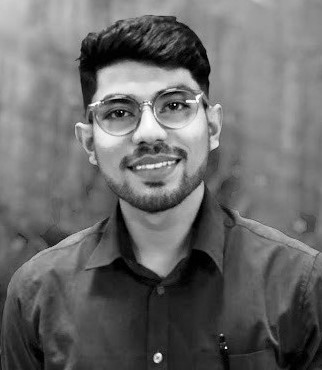
Husson Ahmad
Southeast Asia Working Group Deputy Chair

Husson Ahmad
Southeast Asia Working Group Deputy Chair
Husson Ahmad is a Consultant and Rohingya Community Advocate with nine years of experience supporting marginalised and refugee communities through advocacy, legal empowerment, and capacity-building initiatives. He is also the Founder of the Rohingya Youths Support Network (RYSN), a youth-led refugee organisation dedicated to advancing education, leadership development, and community engagement among Rohingya young people in Malaysia. Husson has worked with leading humanitarian organisations, including Asylum Access Malaysia, the International Rescue Committee, MERCY Malaysia, Host International, and Health Equity Initiatives, contributing to community outreach, child protection, interpretation, and mixed-migration research. He has also played key roles in research with the Mixed Migration Centre and served as a focal point for academic publications on refugee issues. His advocacy has been featured by UNICEF Malaysia and BBC Vietnamese, highlighting his commitment to refugee rights, social justice, and meaningful community inclusion. Fluent in multiple languages and skilled in cross-sector collaboration, Husson continues to strengthen partnerships between refugee communities, civil society, and international stakeholders to promote protection, dignity, and long-term solutions for displaced populations.
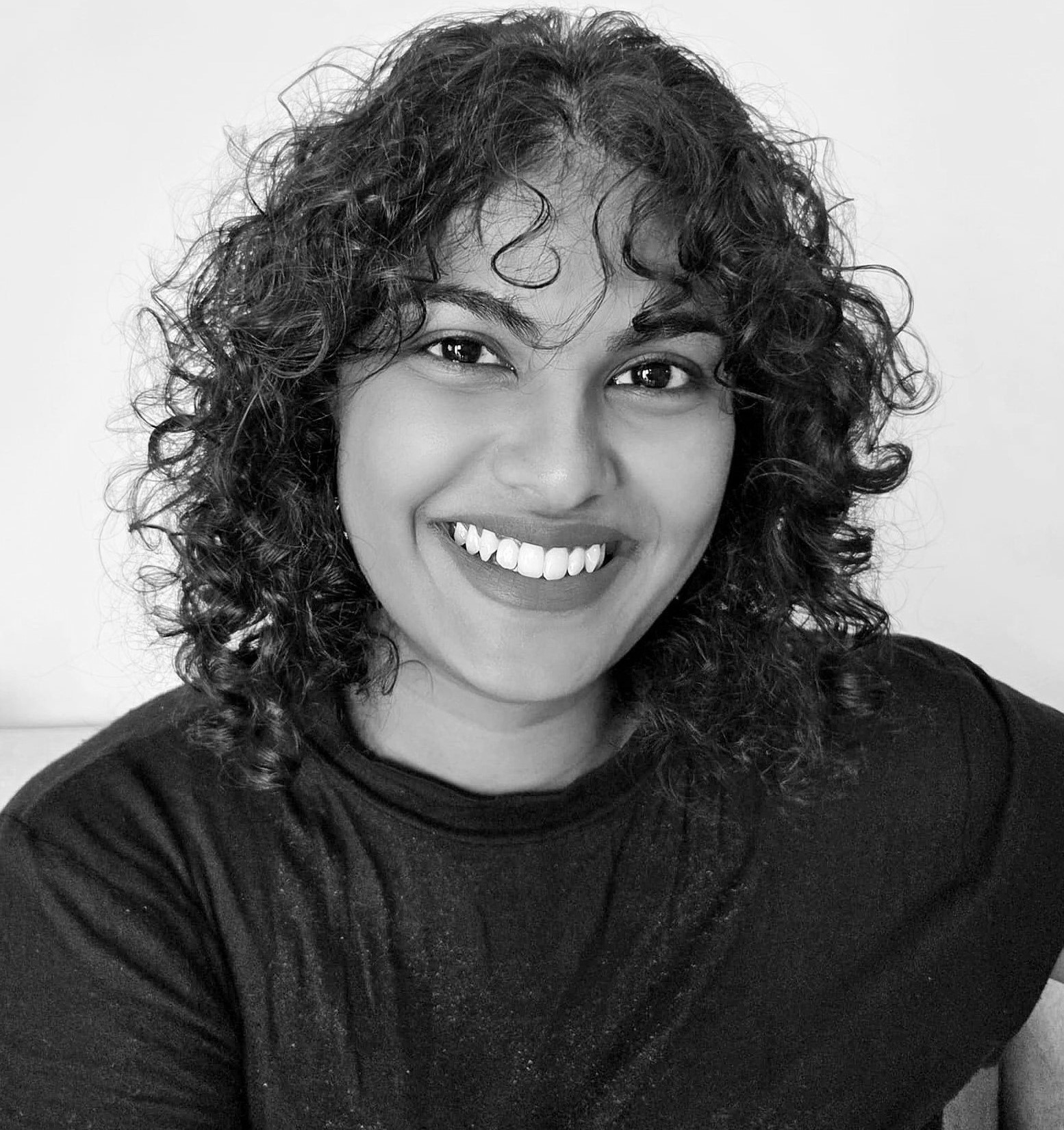
Hannah Jambunathan
Immigration Detention Working Group Chair

Hannah Jambunathan
Immigration Detention Working Group Chair
Hannah Jambunathan is the Asia Pacific Programme Officer at the International Detention Coalition (IDC), where she works to drive policy change on immigration detention and ATD across national, regional, and global levels. In Malaysia, she is currently working in close collaboration with civil society and Government stakeholders to develop a community-based ATD policy for children, and she also coordinates a national civil society network to mobilise advocacy towards creating a more open social and political environment towards migrants and refugees. Drawing on her academic research background, Hannah has authored several research reports and policy briefs on the issue of immigration detention and ATD, in particular on the impacts of immigration detention on refugee families and communities, the intersections of gender and immigration detention, and the critical need to reduce the use of immigration detention for children.
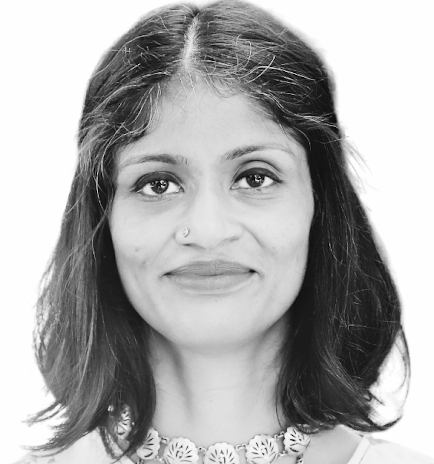
Hamsa Vijayaraghavan
Legal Aid and Advocacy Working Group Chair

Hamsa Vijayaraghavan
Legal Aid and Advocacy Working Group Chair
Hamsa is a qualified lawyer who has previously worked as an asylum and immigration adviser in the UK and with the UNHCR field office in India, as well as at the Ministry of Women and Child Development of the Government of India and UNICEF. As the Chief Operating Officer at Migration and Asylum Project, India’s first and only centre for the study of forced migration, her work is centred around advocating for a cohesive movement towards safe migration in the region by making Rule of Law central to addressing human rights challenges and securing opportunities for rehabilitation for displaced populations. A committed feminist leader, she advocates for inclusive justice systems that recognise gendered harms, intersectional barriers, and the lived realities of displaced communities. She was awarded the Chevening Gurukul Fellowship at the University of Oxford and is a 2024 Asia Peacebuilding Innovators Fellow (Salzburg Global Seminar) and 2024 Fisher Family Fellow (Stanford University). She has previously chaired the South Asia Working Group and now as Chair of APRRN’s Legal Aid & Advocacy Working Group, she aims to work to strengthen regional collaboration, amplify community-led legal responses, and advance equitable protection frameworks across the Asia-Pacific.
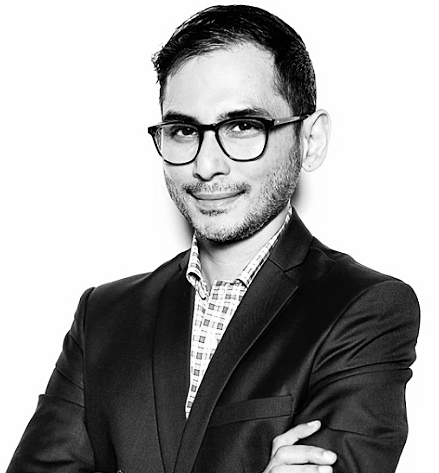
Ryan Joseph Figueiredo
Women, Gender and Diversity Leadership Working Group Chair

Ryan Joseph Figueiredo
Women, Gender and Diversity Leadership Working Group Chair
Ryan is the founder and Executive Director of Equal Asia Foundation – a regional LGBTIQ+ non-profit think tank and innovation incubator with offices in Amsterdam and Bangkok. Equal AF’s work is focused on future scoping and future-proofing around issues such as ageing, climate change, mental health, and financial citizenship for LGBTIQ+ communities in Asia. Ryan has worked in the non-profit and management consulting space for over 20 years. At Equal AF, Ryan leads regional and national multi-specialisation initiatives that address deep-seated inequities within the LGBTIQ+ movement. In 2018, Ryan was selected as one of the Human Rights Campaign's Global Innovators. In 2019, Thomson Reuters Foundation named him a Global Changemaker for his work. In 2020, he was recognised as a Global Change accelerator by the Resource Alliance. Ryan sits on several international LGBTIQ+ advisory and mentorship groups. Ryan is a formerly displaced person. He served on the board of the Forcibly Displaced People Network in Australia. He is an alumnus of the Tata Institute of Social Sciences. He has trained in clinical trials at the London School of Tropical Medicine and in population ageing at the University of Oxford.
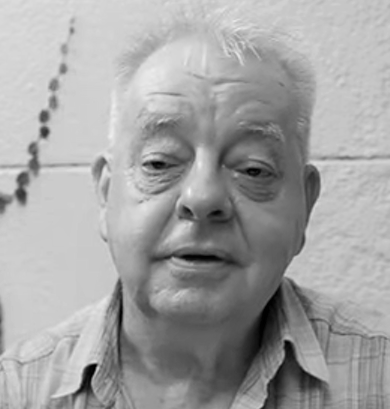
John Patrick Murray
Creative Initiatives in Practice Working Group Chair

John Patrick Murray
Creative Initiatives in Practice Working Group Chair
I come from Brisbane, in Australia, having spent the last 20 years in Bangkok, where I work with Caritas Thailand on migration, specifically migrant worker populations, urban refugees and Burmese along the border with Myanmar. I am the Director of the National Catholic Commission on Migration and play a pastoral role in reaching out to refugees in Bangkok and beyond. I am here due to my belonging to the Order of St Augustine in the Catholic Church and being a priest. This is because my assignment in the Church is to pastoral care of refugees and migrants. I am COERR’s focal person with APRRN. I value this connection and network, even if I have not played a high profile role over the years. My specific passion has been helping urban refugees and Myanmar and its people. We did have a great local network in Bangkok, furthering the plight of urban refugees - BASRAN (Bangkok Asylum Seeker and Refugee Assistance Network). Given the realities of our present world, networking is more important than before, looking to new ways to operate, coordinate and find resources.

Rana Ebrahimi
Age, Gender and Diversity Working Group Chair

Rana Ebrahimi
Age, Gender and Diversity Working Group Chair
Rana Ebrahimi, National Manager of MYAN, champions advocating for the rights of refugee and migrant children and youth. She is an expert in social inclusion, influencing policy and practice. Rana is chair of Refugee Education Australia, Chair of Diversity, Equity, Inclusion, and Belonging of Rotary District 9800, and Chair of Asia Pacific Refugee Rights Network’s Age Gender Diversity Working Group. She is the treasurer of Conversation at the Crossroad and a member of several advisory groups, including the SBS Community Advisory Committee, Welcoming Australia, and the National Youth Employment Body. Rana was appointed as a reference group member for the Multicultural Framework Review, is the former President of the Equal Employment Opportunity Network. She is the first Iranian woman to serve as National Head of Office for the United Nations High Commissioner for Refugees (UNHCR) in Iran. Rana is a recipient of the Multicultural Award of Excellence 2023 and has been recognised as a Rotary Champion of Change.

Muzafar Ali
Refugee Leadership and Participation Working Group Chair

Muzafar Ali
Refugee Leadership and Participation Working Group Chair
Muzafar Ali is a former refugee from Afghanistan, now based in Australia. He is the co-founder and CEO of Cisarua Learning, a refugee-led organisation. A photographer, filmmaker, and writer, he is also a passionate advocate for the rights of refugees and other marginalised groups. Between 2005 and 2012, Muzafar worked with various United Nations offices as a disarmament program coordinator, political analyst, and media consultant. In 2013, while in Indonesia, he mobilised the refugee community in West Java to co-found the Cisarua Refugee Learning Centre, the first refugee-led school in Indonesia. The school became a model of self-reliance, sustainability, and mutual support, providing equal opportunities for refugee women to take up leadership roles. Now, through Cisarua Learning, he supports the education of 1,300 refugee children in Indonesia and Thailand by backing refugee-led initiatives that provide critical psychosocial support in challenging conditions. Muzafar has co-directed and co-produced three documentary films: The Staging Post, Watandar – My Countryman, and We Are Not Powerless. He has also written for theatre series and consulted on numerous film and drama related to amplifying voices and show real image of refugees, mostly untold in traditional media.
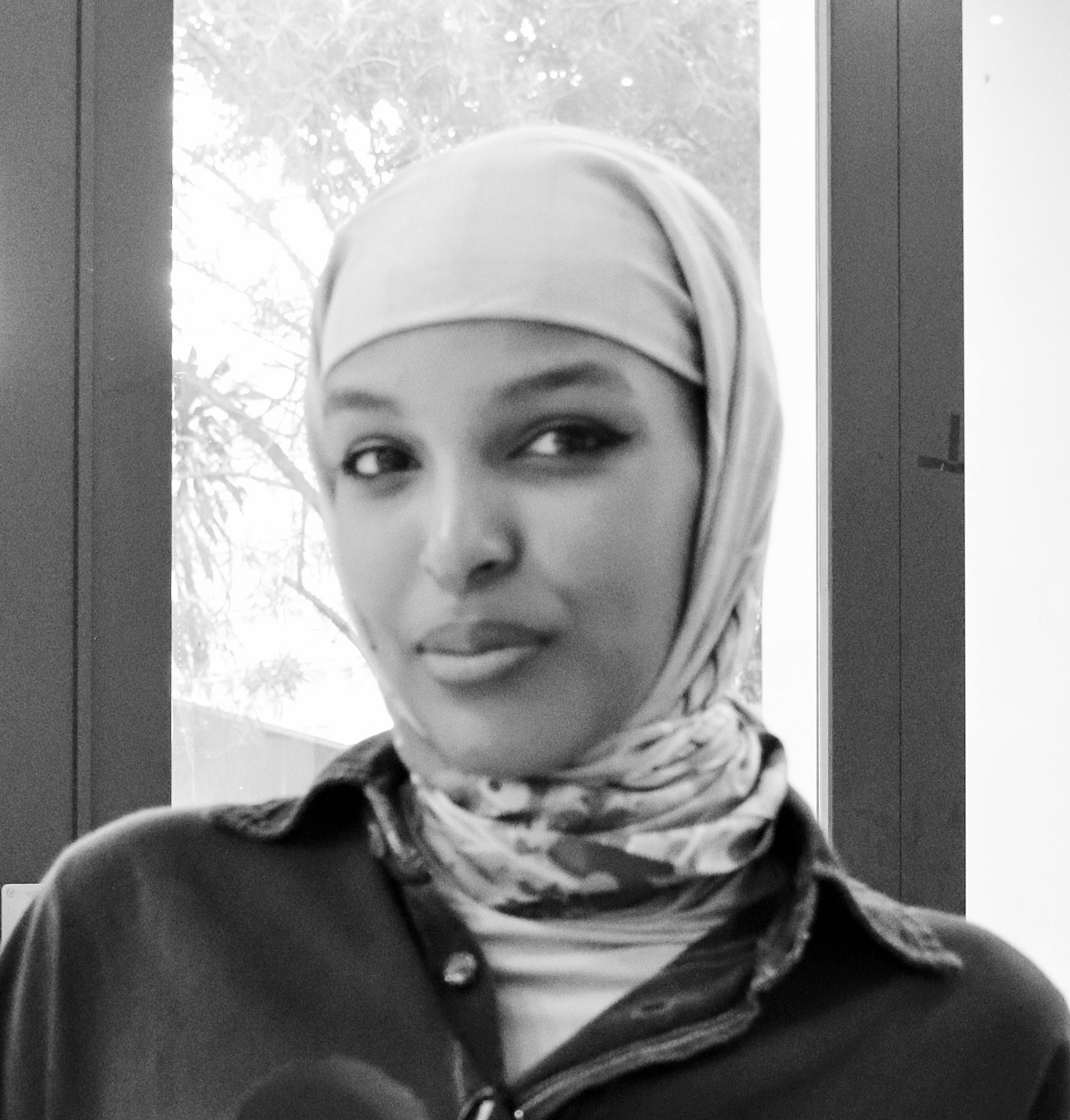
Muna Baroud
Refugee Leadership and Participation Working Group Deputy Chair

Muna Baroud
Refugee Leadership and Participation Working Group Deputy Chair
Muna Baroud is the co-founder of Emplace Youth Initiative, a refugee-led initiative that works with refugee communities in Indonesia, especially youth. Through Emplace, she works closely with refugee youth on leadership development and community-driven initiatives that respond to gaps in access to education, skills development, and participation. Her work is grounded in long-term community engagement and lived experience, with a focus on building inclusive, accountable, and youth-centred approaches that support refugee youth to lead, organise, and advocate for their communities.
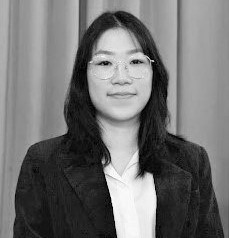
Kunanyaporn Jirasamatakij (Git)
Legal Aid and Advocacy Working Group Deputy Chair

Kunanyaporn Jirasamatakij (Git)
Legal Aid and Advocacy Working Group Deputy Chair
Git is a human rights advocate with over eight years of experience working on Indigenous rights, enforced disappearances, the anti-torture bill, and digital rights. She also has experience in media engagement, blogging, podcast production, and journalism. Building on this background in rights-based advocacy, she later shifted her focus toward displacement and refugee protection, working on issues that connect human rights, regional policy, and humanitarian response. She currently serves as the Regional Advocacy Focal Point for Jesuit Refugee Service (JRS) Asia Pacific, supporting policy development and evidence-based research across eight countries. Her work includes advancing the right to work for refugees, strengthening cross-border Myanmar–Thailand advocacy, and contributing to regional efforts that bring forgotten crises to global attention. Git currently serves as the Deputy Chair of the Legal Aid and Advocacy Working Group within the Asia Pacific Refugee Rights Network (APRRN).
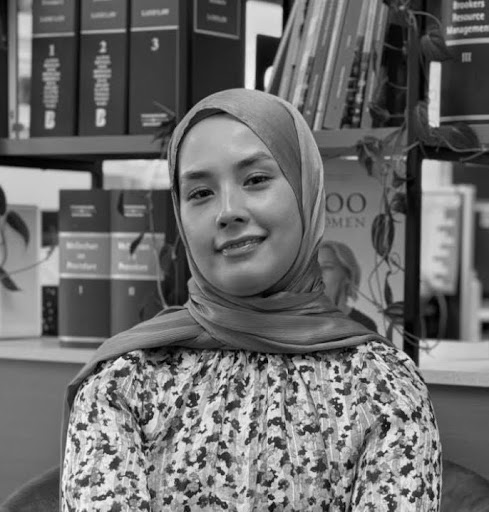
Madiha Ali
Immigration Detention Working Group Deputy Chair

Madiha Ali
Immigration Detention Working Group Deputy Chair
Madiha Ali Changezi is a lawyer at Dixon and Co Lawyers and a former Judges’ Clerk at the High Court in Auckland. With a focus on refugee and human rights law, Madiha brings both professional expertise and lived experience as a former refugee to her advocacy and legal practice. She has contributed to national and international policy development through her roles on the UNHCR Refugee Advisory Group to the CRCP, the New Zealand Refugee Advisory Panel, and the New Zealand National Refugee Youth Council. Madiha holds a Bachelor of Laws (Honours) from the University of Waikato. Alongside her academic and legal pursuits, Madiha has worked as a youth worker and community advocate, supporting ethnic youth from migrant and refugee backgrounds. In recognition of her contributions to the community, she received a Civic Award from the Hamilton City Council in 2024. Madiha has shared insights at global forums such as the UNHCR Executive Committee Meeting and the Global Refugee Forum in Geneva, speaking on the importance of refugee self-reliance and lived experience leadership. Madiha brings a thoughtful, intersectional approach to her work and is committed to fostering inclusive systems that reflect the diversity of the communities they serve.

Mohammed Ahtaram
Creative Initiatives in Practice Working Group Deputy Chair

Mohammed Ahtaram
Creative Initiatives in Practice Working Group Deputy Chair
My name is Ahtaram Shin, and I am an independent Journalist & Rights Advocate, researcher, and freelancer with a focus on human rights advocacy and documentation. I was also a teacher in an affiliated middle school in Myanmar. The Rohingya community led high schools. I was also I am a founder of the Rohingya Youth Club and also serve as an Editor and Mentor at Rohingyatographer, guiding and supporting the organisation's work. I have also collaborated with many other Civil societies in the camp and Myanmar. I am a Deputy Chair of the Creative Initiative in Practice of APRRN (Asia Pacific Refugee Rights Network). I also work as a remote medical interpreter and transcriptionist. With nearly a decade of experience, I have consistently contributed to various media outlets, passionately covering the voices and issues of marginalised groups, minority communities, and border residents, with a particular emphasis on Rohingya affairs. I have worked with many international organisations for documentation, translation and interpretation. Furthermore, I have been training and teaching refugee youths for eleven years now. Nowadays, I work as chief editor and senior mentor.
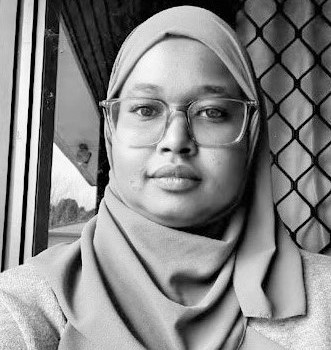
Nimo Ahmed
Women, Gender, and Diversity Leadership Working Group Deputy Chair

Nimo Ahmed
Women, Gender, and Diversity Leadership Working Group Deputy Chair
Nimo Ahmed is the co-founder and Director of The Sisterhood, a refugee women–led organisation in Indonesia. She has been central in creating safe spaces and providing essential support that empowers refugee women to build confidence, strengthen resilience, and feel safe within their community. For the past eight years, Nimo has focused on community organising, project leadership, and advocacy. She brings together women from diverse faiths and backgrounds, nurtures teamwork, and champions women’s refugee leadership. Alongside her leadership role, Nimo is a social service student and is now pursuing her Master of Social Service, further strengthening her ability to support vulnerable communities. Her work is grounded in the belief that upholding refugee rights is essential to building safe, inclusive, and resilient societies.
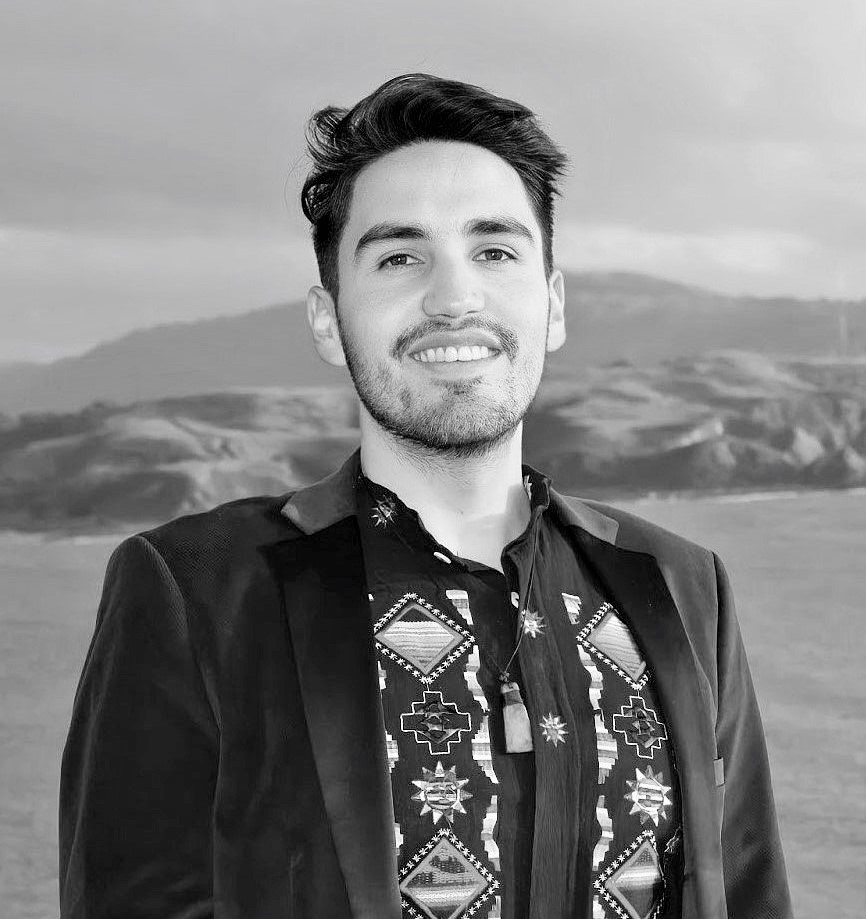
Daniel Gamboa
Age, Gender and Diversity Working Group Deputy Chair

Daniel Gamboa
Age, Gender and Diversity Working Group Deputy Chair
Daniel Gamboa is the CEO of the New Zealand National Refugee Youth Council (NZNRYC), the only refugee youth-led organization in New Zealand. Daniel has always aimed to create an inclusive and supportive environment that enables refugee youth to thrive, voice their concerns, and contribute to shaping policies and initiatives that promote their rights and well-being. As a proud member of the rainbow community, he has also led a number of initiatives to support the rainbow refugee community. Daniel and his mother fled Colombia when rebels threatened to kill the then 12-year-old boy Daniel because his mother refused to hide their weapons in her restaurant. They then became refugees in Ecuador where they were violently discriminated against because of being Colombian. In 2012 after living in Ecuador for 6 years, the UNHCR resettled Daniel and his mother to New Zealand. His academic background includes a bachelor's degree in Political Science and Development Studies from Victoria University of Wellington, a leadership diploma from the University of Cambridge, and a certificate in Refugee and Forced Migration Studies from Oxford University. He has held senior roles in the New Zealand government. He has worked as a senior engagement advisor for the NZ Department of Internal Affairs and the New Zealand Royal Commission of Inquiry into State Care Abuse. He is the deputy chair for the youth working group of the Asia Pacific Refugee Rights Network. He has attended and participated at the 2023 UNHCR Regional Consultations with NGOs in Asia and the Pacific and has been a guest speaker at the following: CRCP working group in Sydney (2024), Asia Pacific Refugee Rights Conference (2016 & 2023), The Annual Tripartite Consultations on Resettlement (2016 & 2017) & Annual consultations with NGOs (2016).
Members

SECRETARIAT

Hafsar Tameesuddin
Co-Secretary General

Hafsar Tameesuddin
Co-Secretary General
Hafsar is a social worker, human rights defender, and Rohingya activist. They advocate for gender equality, child marriage, LGBTQI, refugees, and statelessness with more than a decade of experience working with refugee communities, INGOs, and NGOs. They are an advisory member of the Global Movement of Statelessness and served as an interim Advisory member of the UNHCR Advisory Group. Their expertise includes understanding the ground realities of challenges faced by refugees, statelessness, and LGBTQ+ communities as someone with lived experience. They passionately advocate for the power shift, inclusion, and diversity within the systems. Their work and advocacy are centered on the improved prevention and response measures to SGBV, to promote and protect the rights of refugees, stateless people, asylum seekers, and LGBTQ+ communities in the Asia Pacific Region and beyond.

Klaus Dik Nielsen
Co-Secretary General

Klaus Dik Nielsen
Co-Secretary General
Klaus is an international human rights advocate and partnership builder with more than 20 years of practical experience in bringing about positive change for minorities and marginalised people by designing and driving influencing, partnership, mobilisation, and capacity-building strategies. Advocating for rights, social justice, and meaningful inclusion and participation behind closed doors and campaigning in public, Klaus works with civil society, government, funders, the private sector, UN agencies, and other stakeholders. He has worked with Amnesty International (International Secretariat) and the Open Society Foundations and consulted with ActionAid Thailand, the People’s Empowerment Foundation, APCOM, OHCHR, and UNICEF.
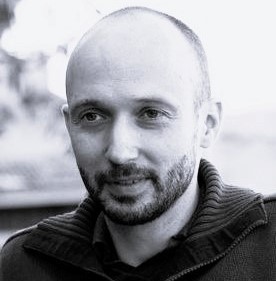
Lars Stenger
Network Coordinator
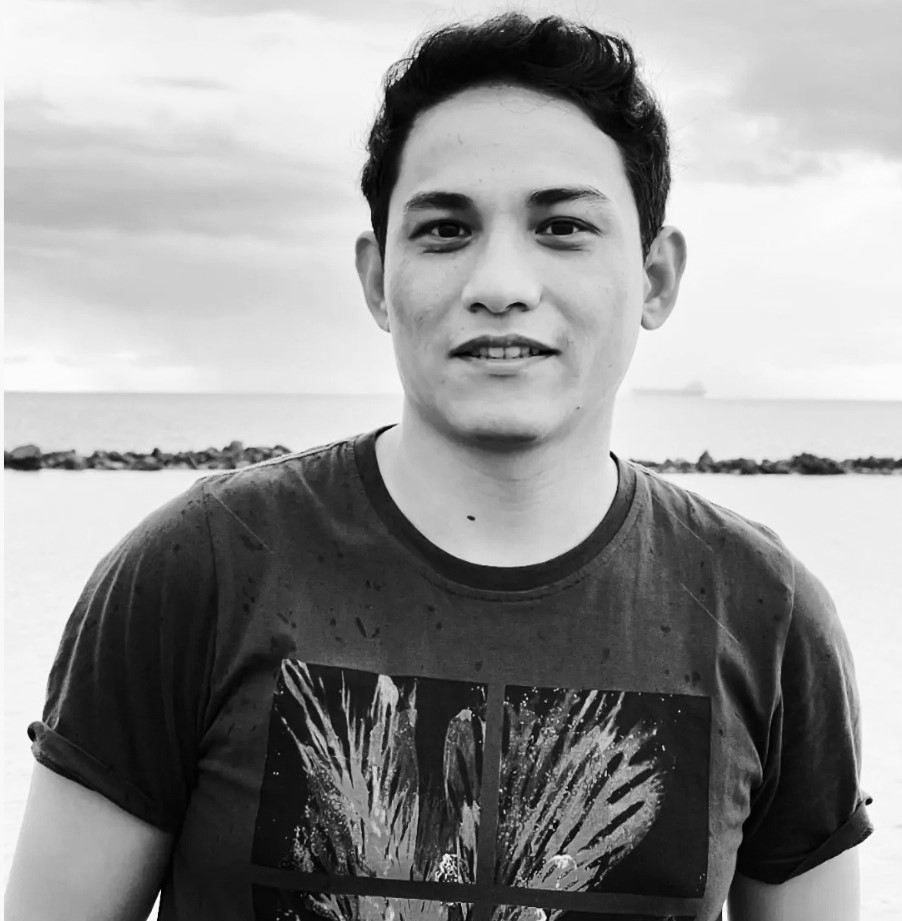
Ali Reza Yawari
Membership Support & Communication Consultant

Ali Reza Yawari
Membership Support & Communication Consultant
Ali Reza Yawari is a Hazara refugee from Afghanistan and a multifaceted advocate, filmmaker, and published author currently based in Indonesia. Having experienced displacement as a refugee himself and his subsequent involvement in various initiatives that have driven positive social impact, his journey has been marked by a deep commitment to addressing the challenges faced by forcibly displaced communities. As the founder and leading director of a Refugee-led Learning Community and a Youth-led Initiative, he envisions a future where all people of disadvantaged communities can have access to education and meaningful participation in society. Despite the complexities of his situation, his profound interest in IT, Media, and Communication, along with carrying out related training, workshops, research, and projects, has allowed him to continue advancing in his areas of expertise. Ali's extensive skill set encompasses his commitment to storytelling through documentary filmmaking and writing as a means of advocating for the rights of refugees, inclusion, and their meaningful participation. His works are dedicated to shedding light on critical issues such as migration, human trafficking, and refugee rights. Ali's work stands as a commitment to dispelling misconceptions about refugee communities while championing their rights.
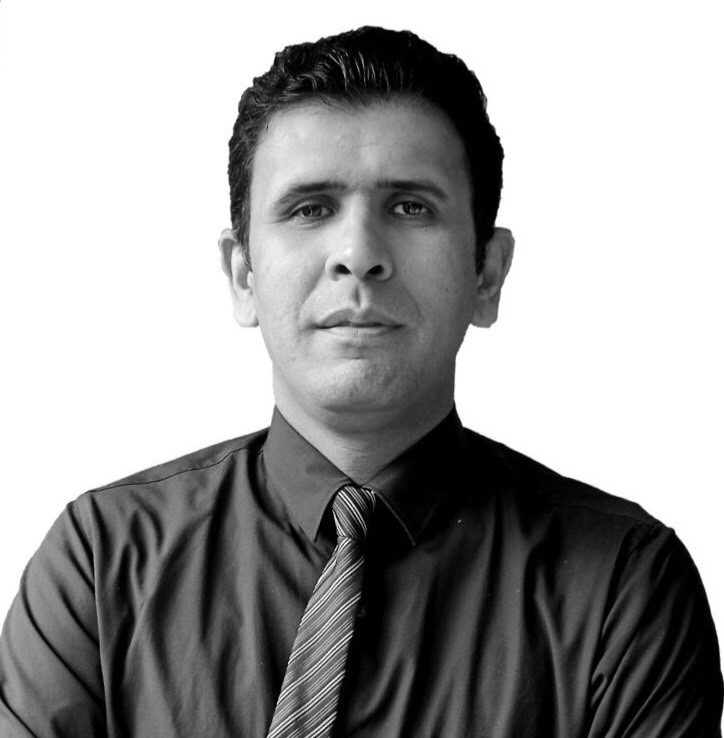
Murtaza haidari (Mobin)
IT Officer

Murtaza haidari (Mobin)
IT Officer
As an IT Consultant and Service Provider for APRRN, Mobin advises and manages the organization's IT systems. His role involves understanding the organization's needs, analyzing existing systems, and providing recommendations for improvements to optimize the IT infrastructure and systems. He ensures that the systems are up-to-date and secure, while also providing technical support and assistance to the team. Mobin's diverse expertise and tailored solutions support the organization's goals and enhance its operations.

Amrita Paul
Programme Officer

Amrita Paul
Programme Officer
Amrita Paul brings a decade of experience in the non-profit sector, specializing in the assessment and refinement of access to justice frameworks for individuals in custody. Her primary focus is on protection concerns vis-à-vis detained refugees and asylum seekers in non-signatory states in the region. Her work encompasses critical aspects such as identification, registration, and facilitating access to legal representation, all aimed at reducing prolonged detention, preventing unnecessary incarcerations, and ensuring effective legal aid for refugees and foreign nationals. Amrita's approach includes research, advocacy, and close collaboration with state entities to develop and implement practical and effective solutions. Prior to her current role, she played a role in advocating for access to justice initiatives at the Commonwealth Human Rights Initiative (CHRI).
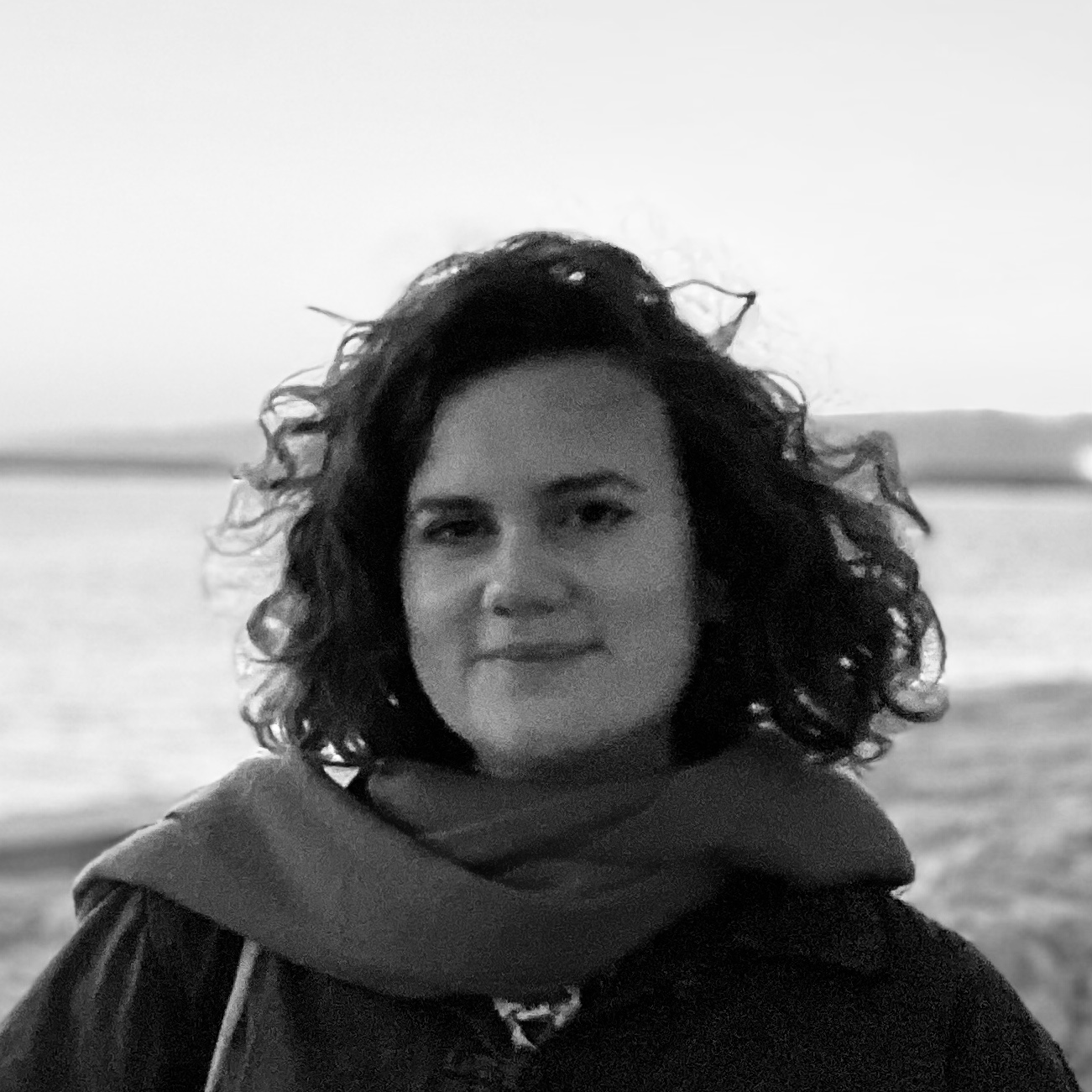
Emma Goldie
Learning Lead Consultant

Emma Goldie
Learning Lead Consultant
Emma Goldie has, for the last ten years, worked for multiple refugee-led organisations, leading, evaluating, and providing strategic oversight to refugee-led projects, that promote meaningful change and refugee and migrant voices. She has collaborated with numerous refugee-led initiatives, and with a focus on the meaningful participation of those with lived experience has brought together management, community leaders, and service users to design, reflect, and feedback on their projects and organisations. Her most recent evaluation for Saint Andrews Refugee Services in Cairo contributed to the wider movement led by the Resourcing Refugee Leadership Initiative that is providing growing evidence of the capabilities, strengths, needs, and urgency for refugee-led organisations in the refugee response.
Subscribe to our newsletter
Keep up to date with our work and the work of our members in this region